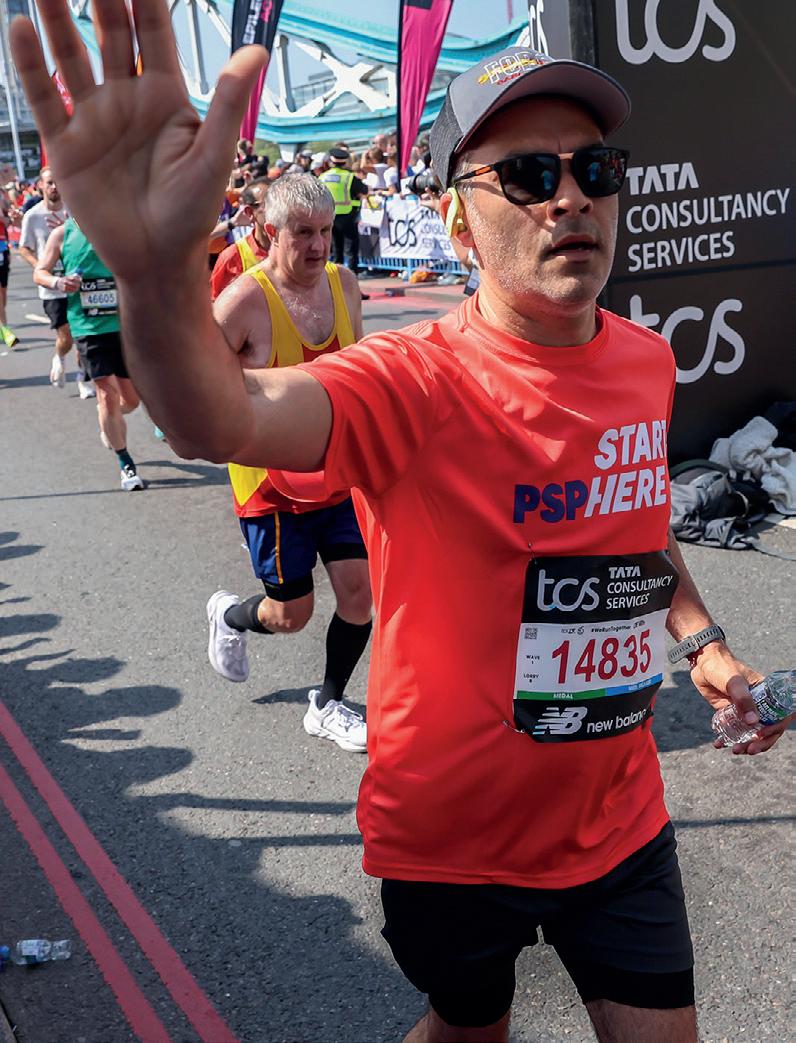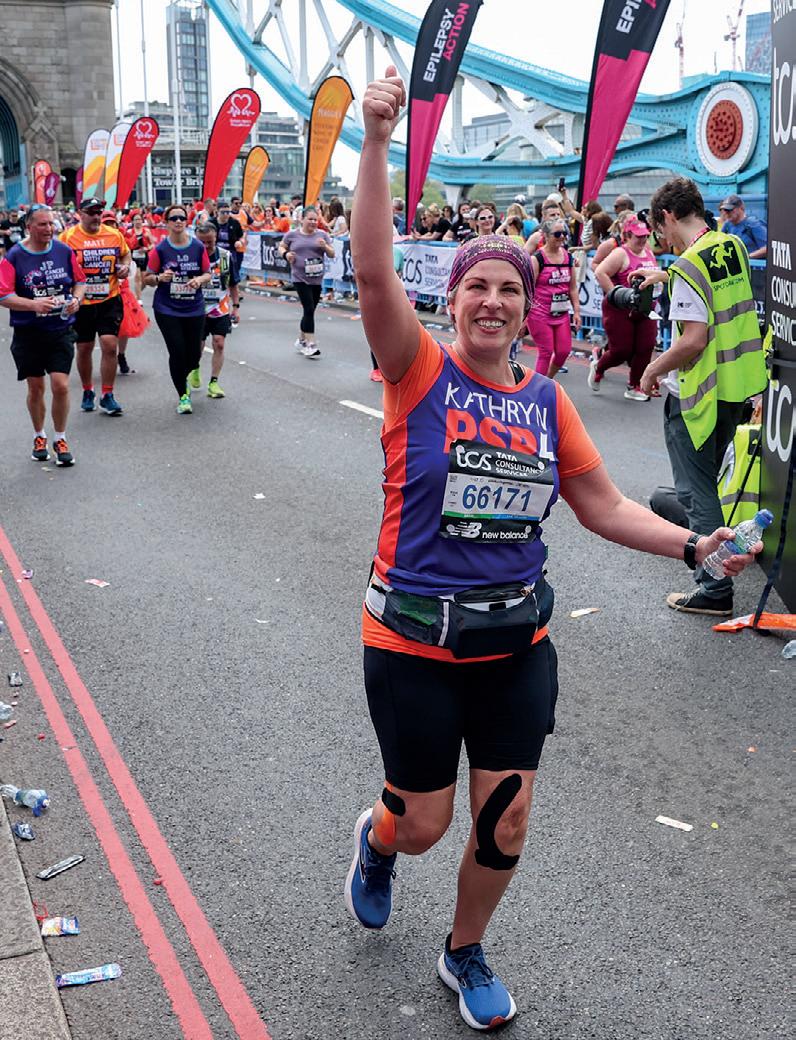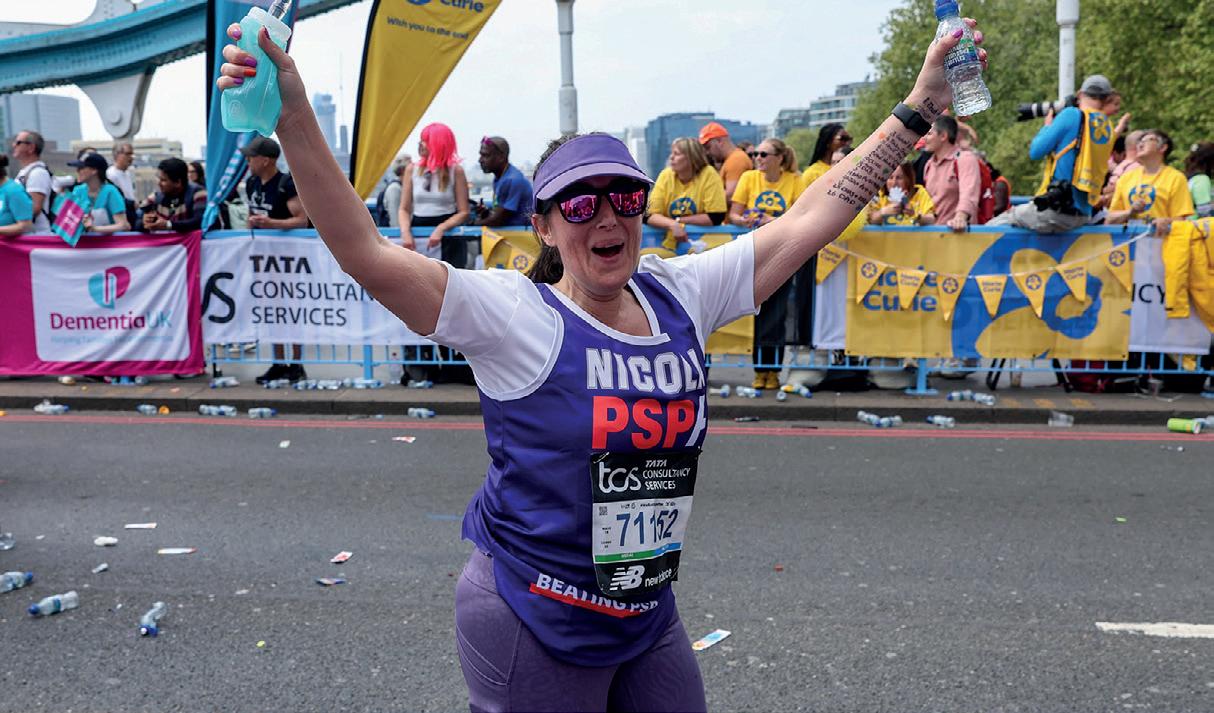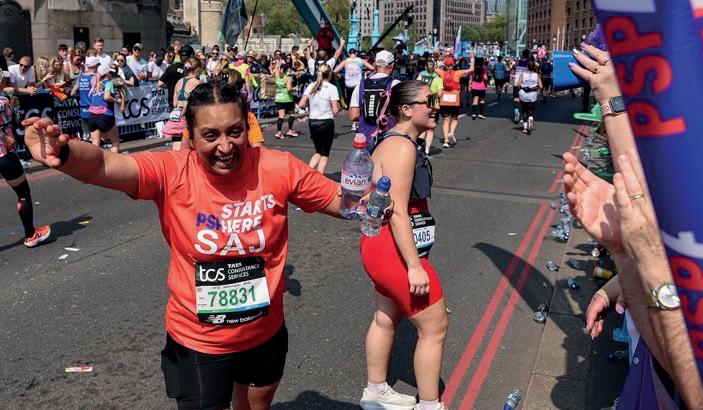M TTERS
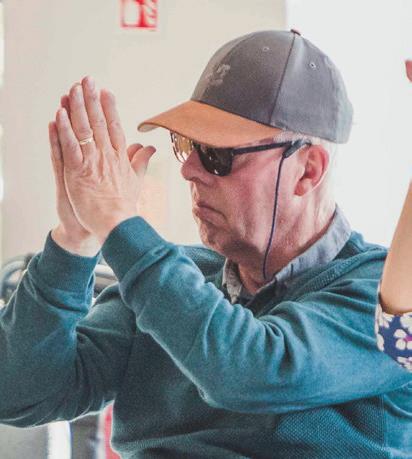
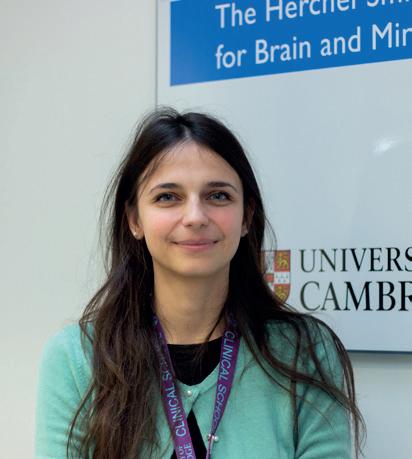
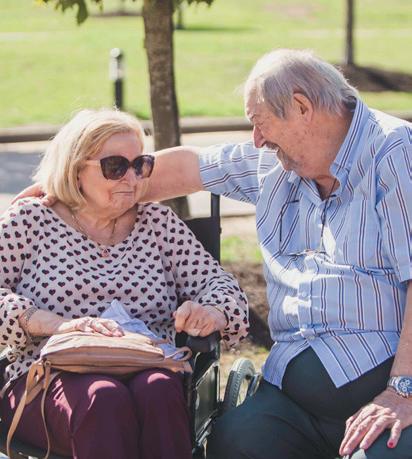
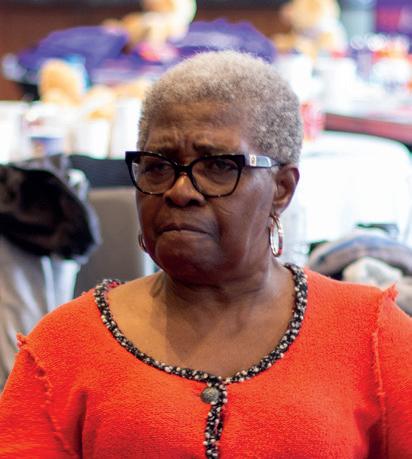
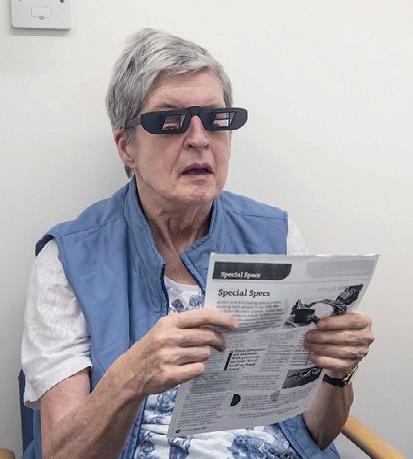
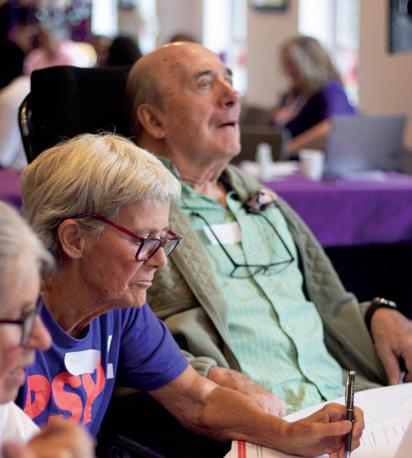
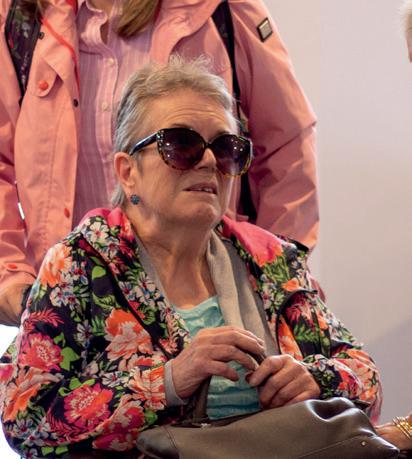
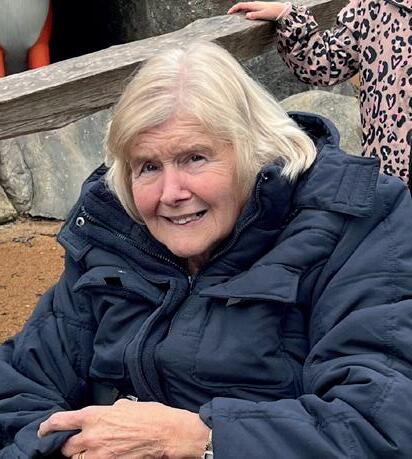
UNDERSTOOD RESEARCH APPEAL
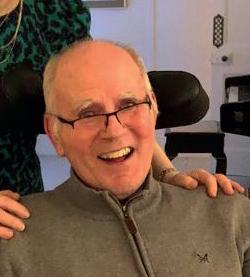
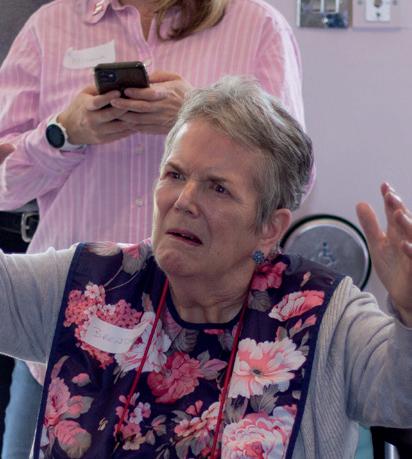
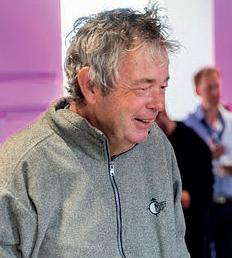
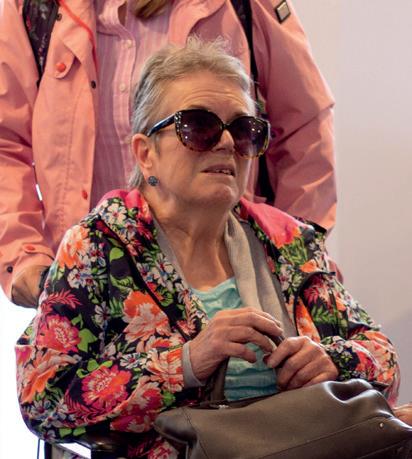
TURN TO PAGE 12
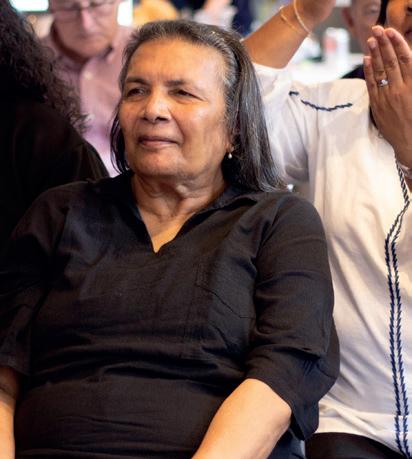
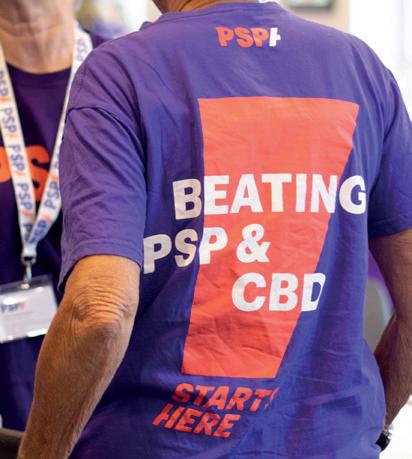
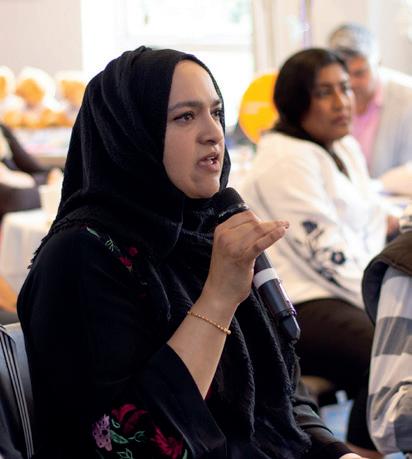
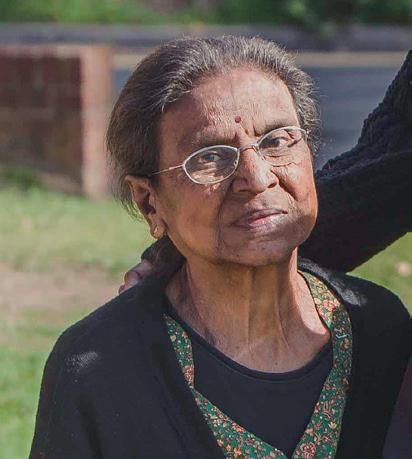
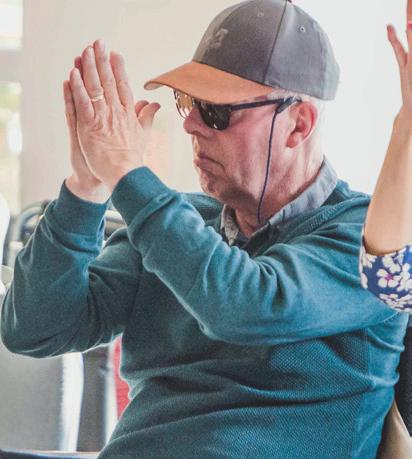
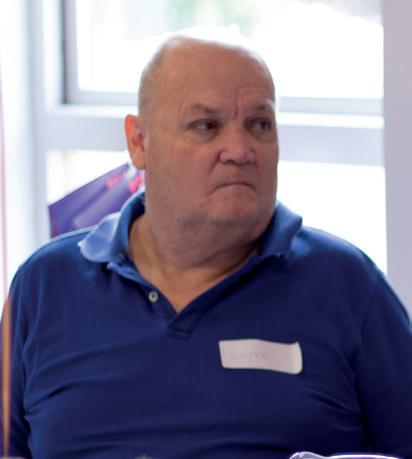
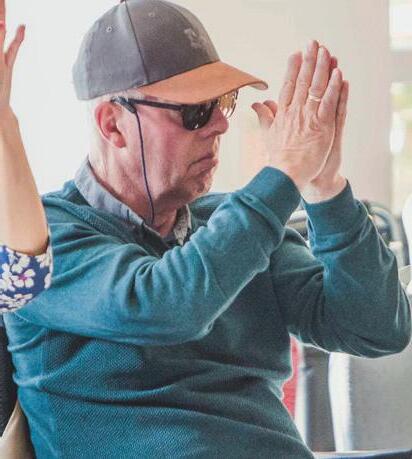
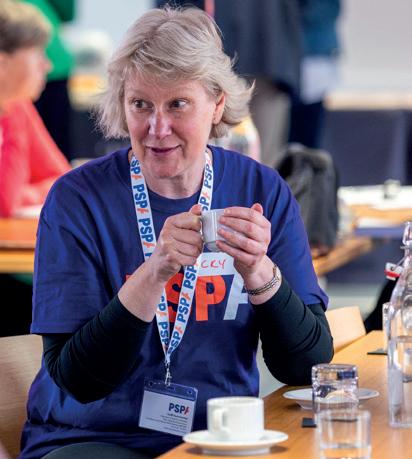
HELP END DEVASTATION OF PSP & CBD

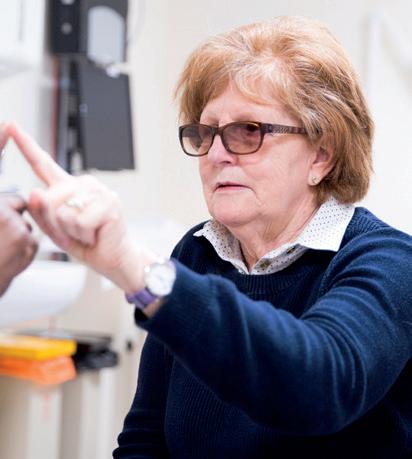

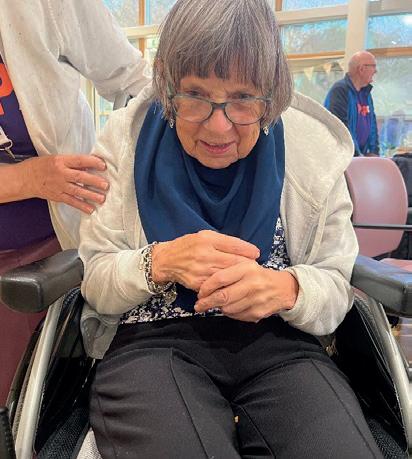
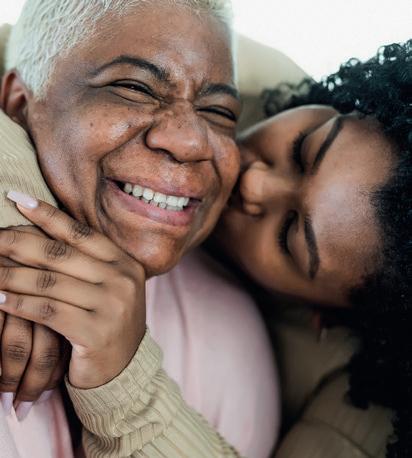
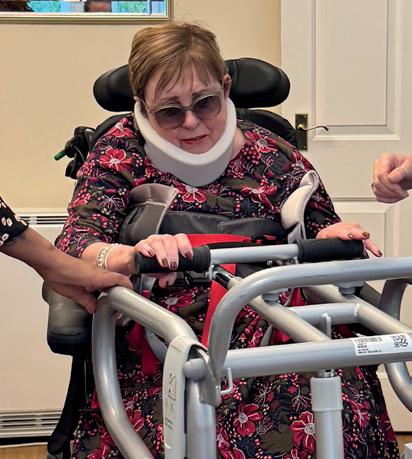
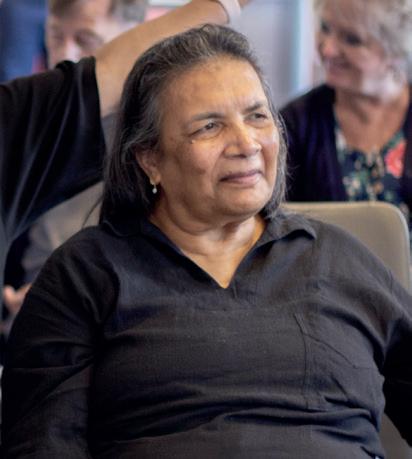
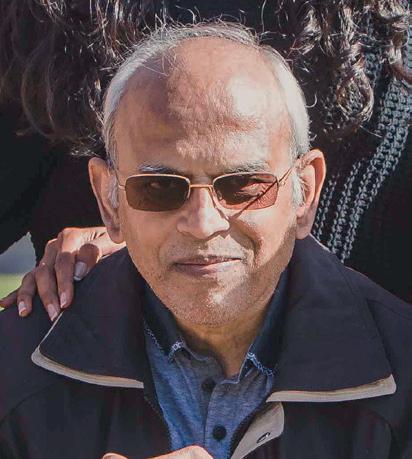
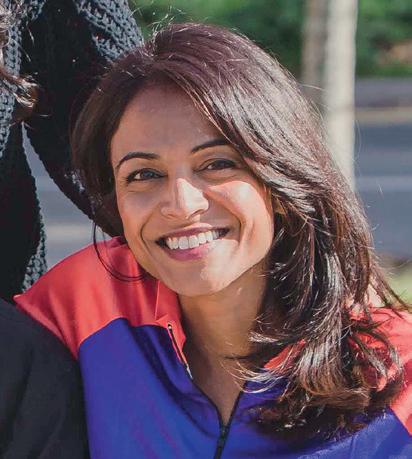

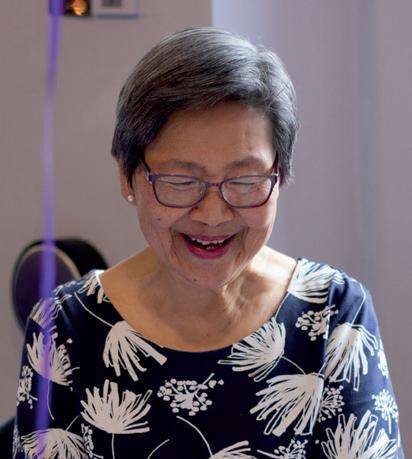
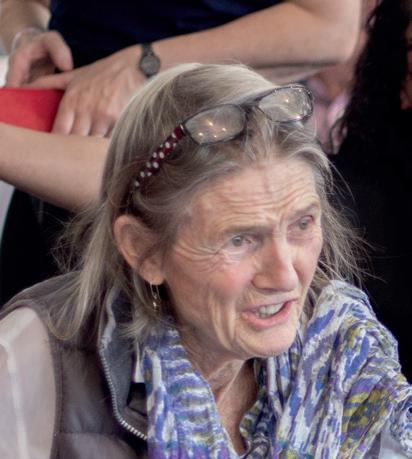
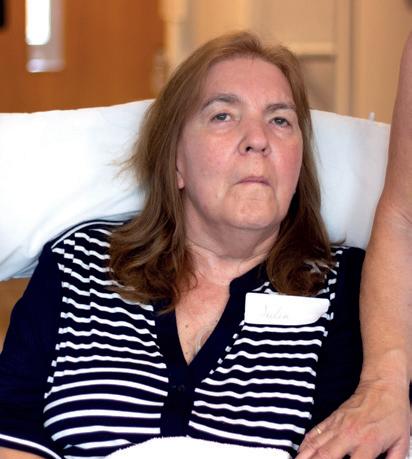
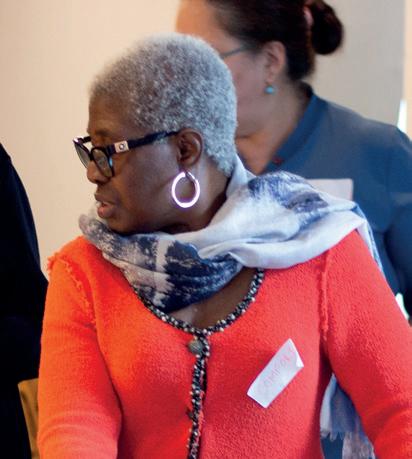
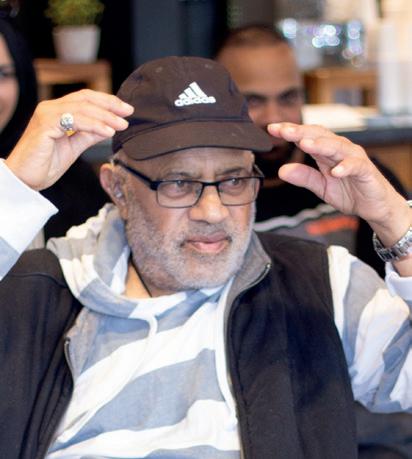
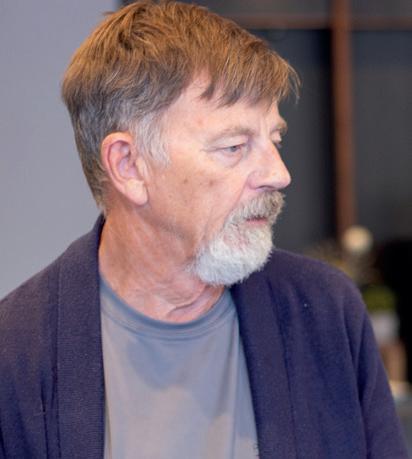













TURN TO PAGE 12








HELP END DEVASTATION OF PSP & CBD
















Our Helpline Care Navigators are here to support everyone affected by PSP & CBD. Each Helpline Care Navigator has a designated area (see map) where they provide proactive support, including:
• Information on all aspects of living with PSP & CBD, such as symptom management, benefits and entitlements and everyday living
• Emotional and practical support
• Contact details for local support, which may include Support Groups
• Information about how PSPA can support you
• Information about health and social care and how to access these services
• Signposting to other sources of information
• Referral for non-means tested benefits applications via Department of Work and Pensions (DWP) home visiting service
• Supporting evidence about PSP & CBD for Blue Badge applications and Continuing Healthcare applications
• Provide specific information written for health and social care professionals and access to Education Volunteers.
Our Helpline and information service is available Monday to Friday 9am to 9pm.
Tel: 0300 0110 122 or email helpline@pspassociation.org.uk
Margaret Powell House, 415a Midsummer Boulevard, Milton Keynes, MK9 3BN
Spring is my favourite time of year. I love the sunlight, the flowers, and the longer days. At PSPA, it’s also a busy time for events, and nothing gets me more excited and emotional than cheering on our PSPA runners at the London Marathon.
This year over 80 runners made the journey from Greenwich Park to The Mall. I was so proud to cheer them on at our #TeamPSPA cheer point. For many, the marathon is an opportunity to honour someone they have lost to PSP or CBD. Collectively they raise a huge amount for PSPA that makes a huge difference to our work.
I also must give a special mention to Michael Aquilina, who cycled all the way from London to Vietnam, raising a staggering £38,000. You can read more about his epic journey on page 36.
We aren’t all cut out to run marathons or cycle around the world, but you can still consider joining our Pathway to Progress event (page 9) where you walk, cycle or swim to help us reach our match funding target of £40,000.
This spring we also launched £350,000 of new research grants at GlobalTau25. The new grants will be funded by money raised from our Understood Appeal (page 12). Please do support our appeal to help us fund vital research into quick and accurate diagnosis, immediate treatment and consistent care.
Focusing on the challenges of diagnosis, our first masterclass for Opticians and Ophthalmologists took place online in March, with nearly 140 people attending to learn about the eye signs of PSP (page 20). A second masterclass for GPs will be held in June focusing on the red flags for diagnosis.
Finally, I want to say huge thanks to Jules Brown who is leaving her role as Helpline Manager at PSPA after 10 years. Jules has done a great job building the service and we are all sorry to see her leave.
Thank you for supporting our charity.

Rebecca Packwood PSPA CEO

USEFUL CONTACTS
Main contact 01327 322410
info@pspassociation.org.uk
Helpline 0300 0110 122
helpline@pspassociation.org.uk
Fundraising 01327 322414
fundraising@pspassociation.org.uk
Volunteering 01327 368597
volunteering@pspassociation.org.uk
Rebecca Packwood, CEO 01327 322413
rebecca.packwood@pspassociation.org.uk
Carol Amirghiasvand, Director of Service
Improvement and Development | Deputy CEO 01327 356137
carol.amirghiasvand@pspassociation.org.uk
Helen Chapman, PSPA Matters Editor 01327 356135
helen.chapman@pspassociation.org.uk
Megan Hodgson, Research Coordinator 01327 322418
research@pspassociation.org.uk
We have published our 2024 Impact Report, highlighting our achievements during our 30th anniversary year. The report reviews progress across three strategic goals: support and information, research, and awareness raising and involvement. Key highlights include growing the PSPA community by 1,482 people – bringing the total number of people the charity supports to 5,657. Our Helpline responding to almost 10,000 emails and calls by providing emotional support and information to people affected by PSP & CBD. Meanwhile, 72% of carers attending online groups reported improved wellbeing.
Last year we extended the opportunities for people living with PSP & CBD and family members to take part in research by increasing our research register
We have launched a new animation to help healthcare professionals better understand the symptoms of CBD.
Narrated by Professor Huw Morris, the animation helps to explain key symptoms healthcare professionals should be aware of and how they can support their patients live the best life possible.
The animation stresses the differences between CBD and other conditions such as Alzheimer’s, PSP and Parkinson’s, as well as the importance of support from a multidisciplinary team.
to 235 people. Research investment rose by 4% to £152,163 and 41 training sessions boosted 73% of professionals’ confidence in supporting people with PSP & CBD. We also contributed to five key policy consultations, including the new UK Government's 10 Year Plan for the NHS.
This is just a snapshot of what we accomplished in 2024. You can read more about our work last year by viewing the 2024 Impact Report on our website.
































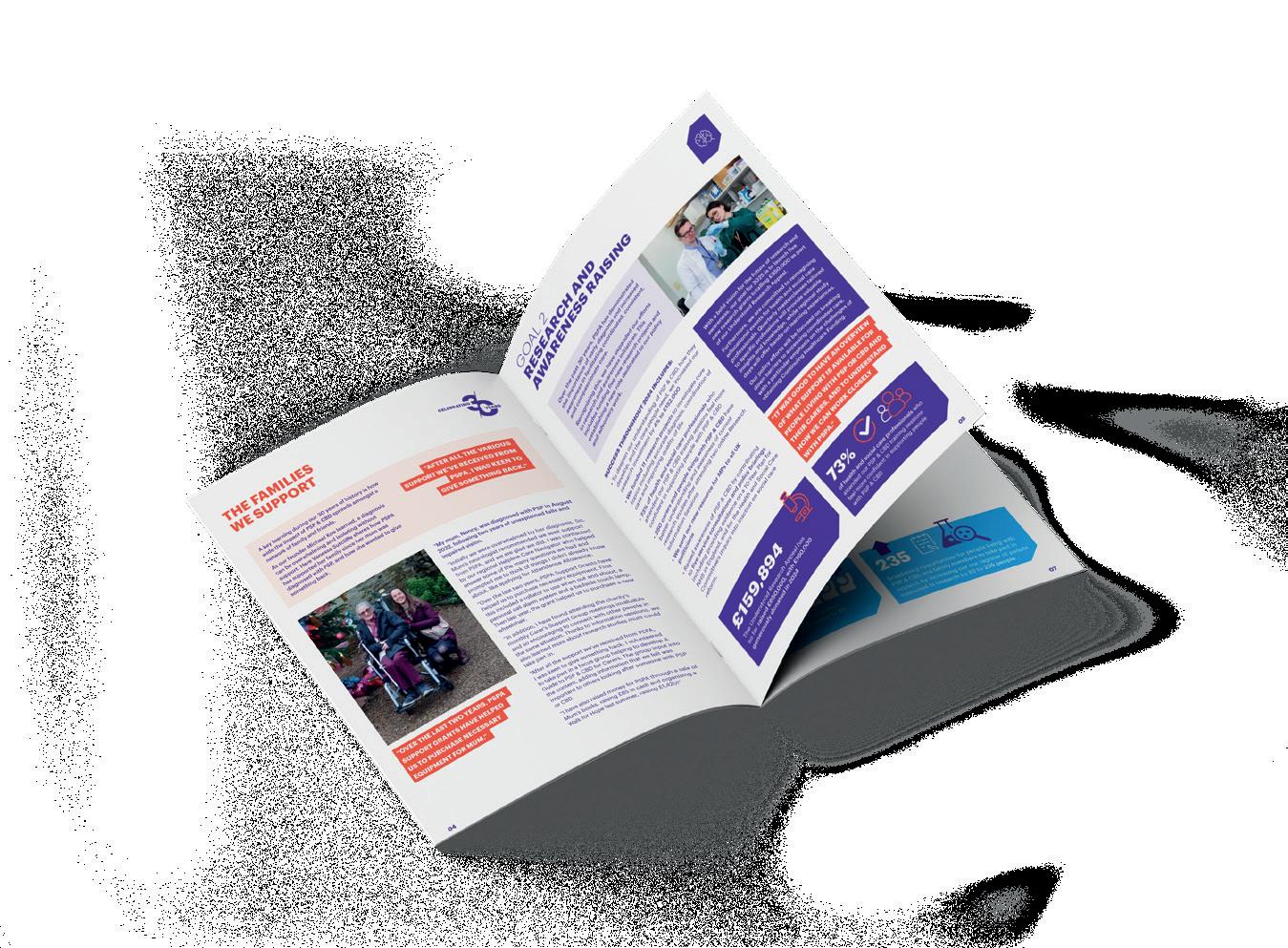
Healthcare professionals are encouraged to watch and share the animation. Just scan this QR code to view it online.
A tribute fund dedicated to the memory of (Ronnie) Veronica Norris 1956 to 2025 has raised almost £1,700 for PSPA. The majority of the money raised was from a collection organised by Lesley Wilson, Chair of the Oakridge West Community Association, which Ronnie and her husband used to be members of.
We held our first Regional Awareness Event for a day filled with connection, learning and support. Helpline Care Navigator Cathy Moughton, along with other PSPA staff, welcomed 37 attendees to the event, all united by their shared experiences of PSP & CBD.
The morning began with a presentation by Debs Thurman, Lead Parkinson’s Practitioner, who offered guidance on managing symptoms and explained the critical role of the Parkinson’s Nurse. Attendees were then joined by Jade Donnelly, Atypical Parkinsonian Syndromes Coordinator, who shared an exciting research study that many may have the opportunity to participate in.

The second half of the morning featured Razia Patel, Physiotherapist from Gloucester’s Community Neurology Service. Razia provided practical advice on staying mobile, shared information on exercises and equipment, and answered questions from the audience.
The event ended with a PSPA-focused session led by Cathy Moughton, who highlighted the range of services available to support families affected by PSP & CBD. She was joined by Matthew Whitby, PSPA’s Corporate and Community Fundraising Manager, who introduced the new Pathway to Progress initiative.
There are more regional events planned for 2025. Please check our website for more information.



A new study aims to understand why people with Atypical Parkinsonian syndromes often face unequal access to care and services they need. ImproveAPS began in March 2025 and is led by Dr Annalisa Casarin at the University of Hertfordshire and Dr Boyd Ghosh at University Hospital Southampton. The two-year project will explore the types of support people receive, which services are most effective and how location impacts care, particularly comparing those living near specialist centres with those further away. Researchers will review existing policies and conduct interviews with people living with APS, their carers and healthcare professionals. They’ll also map out service provision across various regions in England to understand how care teams collaborate, or where gaps exist.
The ultimate goals are to uncover barriers to access and recommend changes that could make the healthcare system more effective and provide recommendations to commissioners of services to improve the quality of life for people with APS. The research team will work closely with those affected by these conditions to ensure their experiences shape the findings. Thanks to the PSPA research involvement group for their help with this project.
If you would like to take part, please email annalisa.casarin@nihr.ac.uk
Series three of the PSPA Podcast has now launched. The first episode is about dealing with a diagnosis and features Anna Smith from RareMinds. Anna discusses the complexities of coming to terms with a diagnosis of PSP or CBD, for both the person diagnosed, and their family/carer. Anna delves into some of the wide variety of emotions you might experience, as well as providing some insight and tips to help you understand and process your feelings. This latest episode is available to listen to on our website or by searching for PSPA Podcast on Spotify or other podcast apps. To suggest future topics to cover please email communications@pspassociation.org.uk.
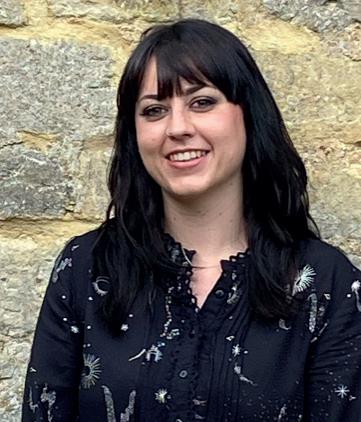
In June we will be using our PSP & CBD Awareness Week to highlight the problems in NHS Continuing Healthcare. We will be calling on the Government to #FixCHC so that it works for everybody living with PSP & CBD. Please join us and campaign for change.

"WE BELIEVE PEOPLE LIVING WITH PSP & CBD DESERVE BETTER."
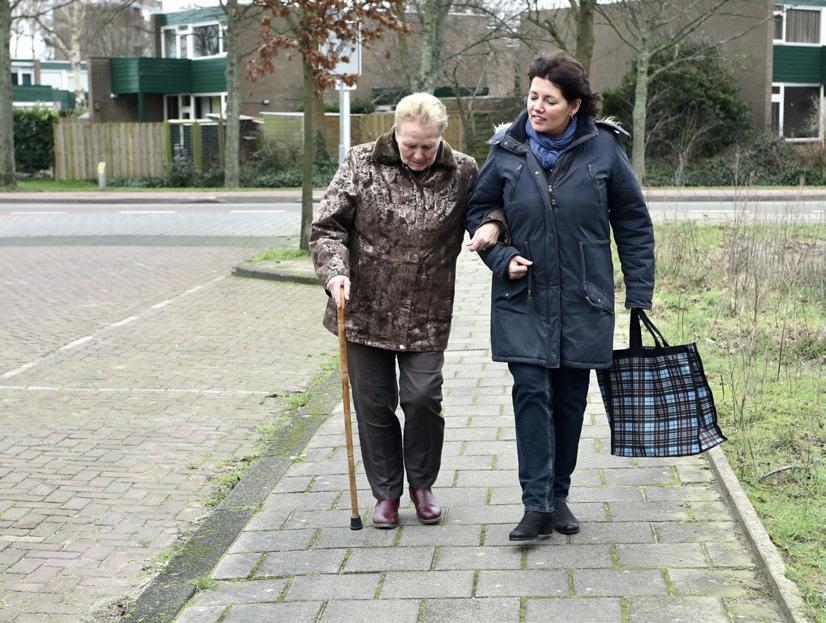
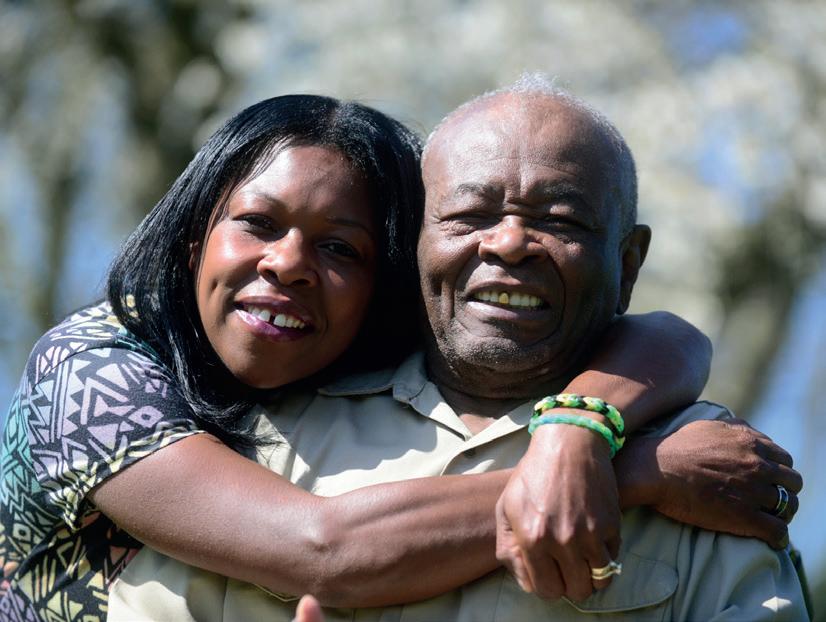
NHS Continuing Healthcare can be a lifeline for families affected by PSP & CBD. It’s a package of care provided by the NHS in England and Wales (different arrangements exist in Scotland and Northern Ireland) for people with ongoing care needs brought on by their condition. Care can be provided at home or in another setting like a care or nursing home, and unlike social care provided by your Local Authority, the cost is met by the NHS.
The fully-funded care that NHS Continuing Healthcare (CHC) provides can be essential for people living with ongoing, progressive conditions like PSP & CBD. For many, it’s the difference between being able to stay at home and having to be cared for elsewhere, and for carers it can be the difference between being able to cope with caring for their loved one or reaching crisis point.
Sadly too often CHC isn’t working as it should. Our new report, State of NHS Continuing Healthcare, shows that fewer people are being found eligible for CHC than in the past, and people are taking longer to hear a decision when they apply. According to the most recent data, just one in five people who apply for CHC funding are given it, and 24% of people wait at least a month to hear back about their application. There are also significant postcode lotteries in England and Wales, with people in some parts of the country more than seven times less likely to receive CHC than in others.
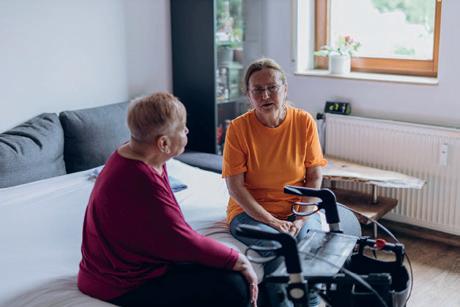


Families have shared their experiences of CHC with PSPA. Some have called the system “broken” and “in disrepair,” with many told that they are not eligible for support despite the care needs brought on by living with PSP & CBD. Others say that the way eligibility for CHC is assessed doesn’t work for people living with the conditions, which not only have progressive and fluctuating symptoms, but are rare diseases that many healthcare professionals haven’t encountered before.
Bob Ruskin from Durham told PSPA how his wife Sandra, who has been diagnosed with PSP, was denied CHC funding four times, and says that “without CHC, we’re left to deal with the consequences on our own,” including having to self-fund Sandra’s care in a care home. Bob also questions whether anybody conducting any of Sandra’s assessments for CHC had any knowledge of her condition.
We believe people living with PSP & CBD deserve better. For many, CHC has become a roll of the dice, with some people receiving fully-funded care that meets their needs while others with very similar needs are denied that support.
WE’RE ASKING THE GOVERNMENT TO #FIXCHC BY:
Improving assessments for CHC so they take account of progressive conditions like PSP & CBD and listen to the experience of family carers
Providing better training for healthcare professionals who undertake assessments for CHC
Ensuring that somebody with knowledge of a person’s condition is part of their CHC assessment
Fixing the postcode lotteries that see people with very similar needs given different support depending only on where they live
Fully funding CHC so nobody misses out because of financial pressures in our NHS. 1 2 3 4 5
PSPA’s Director of Policy and Influencing, Mark Jackson, said: “This Awareness Week we’re asking supporters to help us draw attention to the failures in NHS Continuing Healthcare and our calls for change. CHC should be something that people living with PSP & CBD can rely on, providing them with personcentred and consistent care – instead it’s often the luck of the draw whether somebody gets the help they need, and those who miss out are left to rely on paying for their own care. That’s not right and we’re calling on the UK Government to fix this system.”
We’re asking supporters who are in England and Wales to write to their local MP to let them know about the campaign and raise awareness of the problems in CHC –and asking them to back our calls for change.
Writing to your MP is easy – just go to our website at www.pspassociation.org.uk/awarenessweek-2025 or follow the QR Code on this page. There, all you need to do is enter your postcode and you’ll be taken to a form
to write to your local MP. We have provided a template you can use to give you ideas for what to write, including some key facts and our calls for change.
We want to know if your MP writes back to you, so we can work with them to make the case for fixing CHC – so please let us know at communications@ pspassociation.org.uk or call us on 01327 322410.
You can also support the campaign on social media –we’ll be talking about the campaign throughout Awareness Week on our channels, so you can join the conversation by sharing our posts on your own account and using the hashtag #FixCHC.

WRITE TO YOUR MP
Just scan this QR code to go straight to our website.
As well as supporting our #FixCHC campaign, there are several other ways you can help raise awareness of PSP & CBD this Awareness Week.
Throughout the summer, we are encouraging supporters to get out in their local community and take part in PSPA’s Pathway to Progress. Inspired by the bestselling book – and now major motion picture –The Salt Path, Pathway to Progress is a UK-wide event where PSPA supporters are walking, running and cycling to collectively walk the 630 miles of the Southwest Coastal Path.
Anytime before 30 September, individually or as part of a team, you can walk, run, cycle or take part however you can anywhere in the country. However far you travel, you can log it on our website at www.pspassociation.org.uk/pathway-to-progress - every mile you complete will be added to our community’s progress along the Salt Path.
Pathway to Progress aims to raise awareness of PSP & CBD, as well as raise vital funds to support our vital work on behalf of people living with the conditions.
Recognising the early signs of PSP & CBD is crucial – and it starts with awareness among health and social care professionals. This can help speed up the process of getting an accurate diagnosis by ensuring people are referred more quickly.
In previous years we’ve shared our Eye Red Flag posters with opticians, and our ‘It’s Not Parkinson’s’ information with healthcare professionals about the signs of PSP. Now PSPA has produced a new animation for healthcare professionals (see page 4) aimed at raising awareness of the signs of CBD – ‘It could be CBD.’
Help us spread the word by encouraging your local GP and any other healthcare professionals you’re in touch with to watch the animation.

A generous donor has offered to match whatever our supporters raise up to a total of £40,000 – so every walk will help double the money raised.

Our Understood appeal is aiming to raise £2 million to help create a step-change in research into PSP & CBD. If you’re able to donate any amount, large or small, please visit www.pspassociation.org.uk/research/understood. On page 12 you can read about how we are rallying the PSP & CBD community to work together to fund vital research to help both conditions become better understood.

This May, we launched a advetising campaign aimed at increasing awareness of CBD among healthcare professionals and the general public.
My Path: Corticobasal Degeneration uses the personal stories of people living with the condition to raise awareness of CBD’s key symptoms and the impact they have on day-to-day life.
Since the symptoms of Corticobasal Degeneration can present and progress in individual ways, the campaign highlights two people living with varying degrees of symptoms, who are each experiencing a different path with CBD.
You can watch these short films telling each person’s story on our website or YouTube channel, and in posters you can download and display in your community.
Their stories are also featured in an advert, that will be showing in cinema screenings of The Salt Path around the South West, Midlands and London area, on Youtube and via our social media platforms.
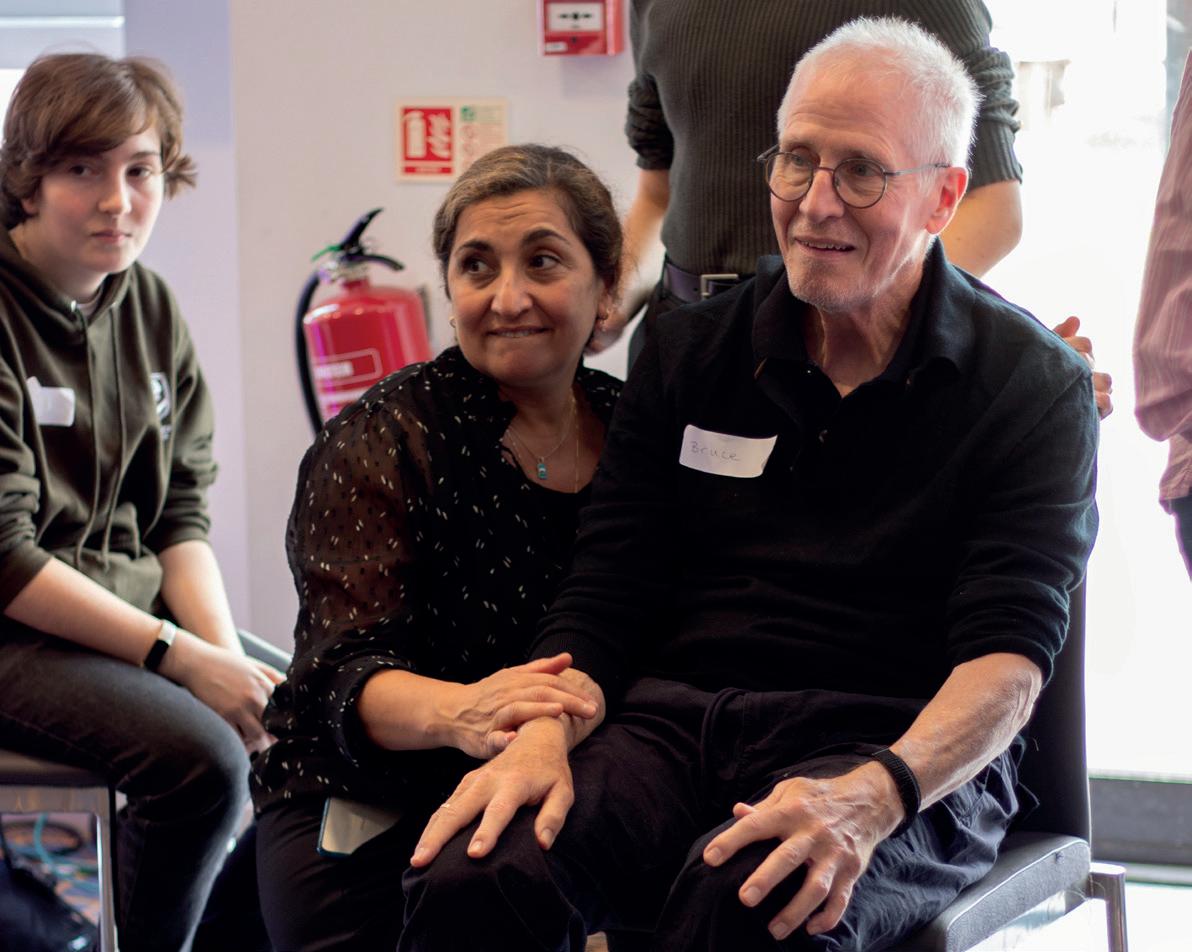
WATCH THE FILMS
Just scan this QR code to watch the short films on our YouTube channel.
SPREADING AWARENESS ACROSS THE UK
If you are touched by the stories of Bruce and Ruth and want to help raise awareness of CBD across the UK, you can find out more about this year’s upcoming PSP & CBD Awareness Week on page 6.
View the My Path films and posters at www.pspassociation.org.uk/my-path-corticobasal-degeneration/
“IT’S BEEN A LONG JOURNEY.”
Bruce and his wife Neda are no strangers to cameras, and you may recognise them from the ITN programme, Inside Neurology: My Unique Brain, we helped produce in 2023.
For My Path, Bruce and Neda talk more about how the delays in receiving a diagnosis impacted their lives and ability to access appropriate care and support.
“I think things could have moved faster if it was on the radar, it could be CBD. He had a lot of the classic symptoms. It was five years to diagnosis. It was very frustrating. Although CBD is terminal and there’s no treatment, having a diagnosis gives you something to hold onto and understand.”
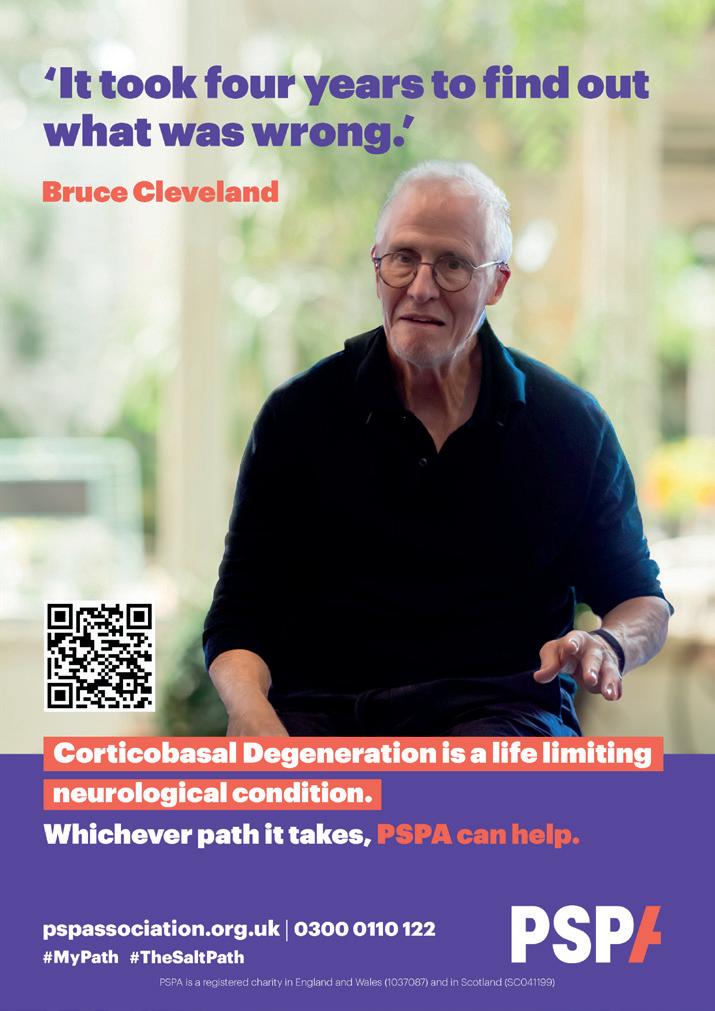

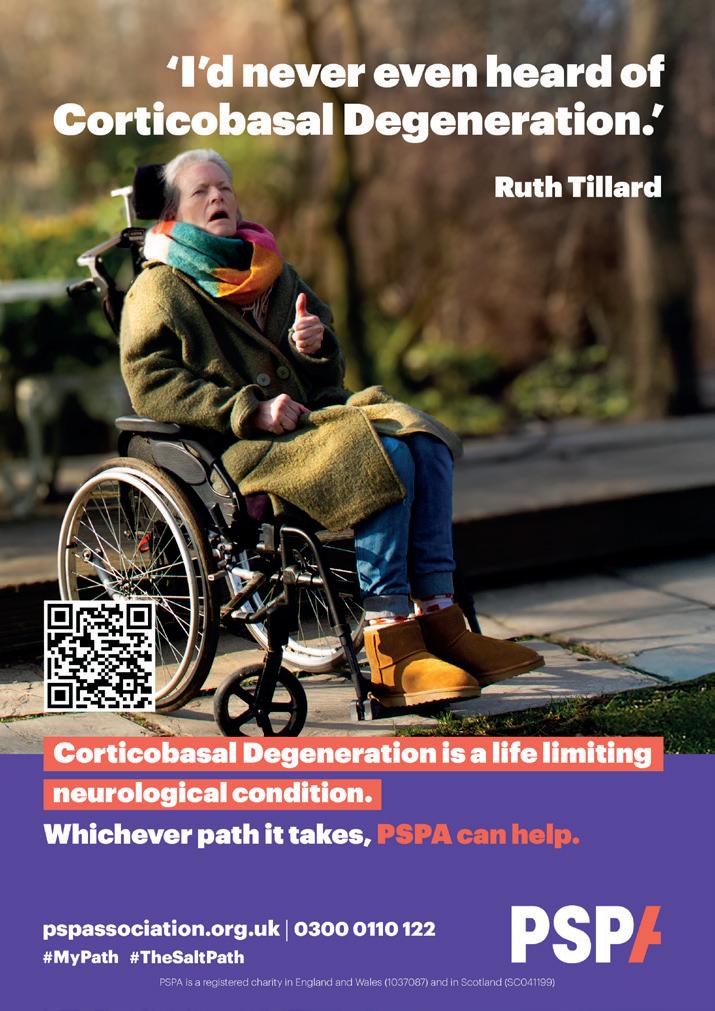

“WE HAD NO IDEA WHAT CBD WAS AT ALL.”
Ruth has been living with CBD for nine years now. Over time, Ruth has lost her ability to walk, talk, and experiences some swallowing problems too.
Ruth’s daughter Roxy, details how the progression of Ruth’s symptoms has impacted their family.
“Every time I saw her; she was quieter and had lost her confidence and wasn’t speaking so clearly. She wasn’t herself. I lost my Mum as she was a very long time ago. It’s kind of like the death of several people, over a period of time.”
We are asking the PSP & CBD community to support our Understood Appeal which is aiming to raise £2 million for investment in life-changing research.

Imagine receiving a diagnosis of PSP or CBD, but then, a moment later, being offered a treatment that will halt its progression. Imagine that diagnosis came early, not years after your first symptoms. Imagine the opportunity to join a clinical trial, guided by healthcare professionals who understand exactly what you’re facing.
Imagine feeling hope. Hope that you will see your children and grandchildren grow up, that you’ll enjoy the retirement you worked so hard for, and that you’ll still be there for your loved ones.
This reality is possible. Science has proved it time and time again in other conditions. Other conditions that started off a mystery but now have a range of effective treatments thanks to investment in research.
Over the last few years, a significant amount of progress has been made and our community of researchers continues to grow. Back in 2015, we called on the PSP & CBD community to fund a groundbreaking study called PROSPECT. Thousands of our supporters, family members and carers donated to our PROSPECT appeal.
PROSPECT, which is still active, is radically improving researchers’ knowledge and understanding of both
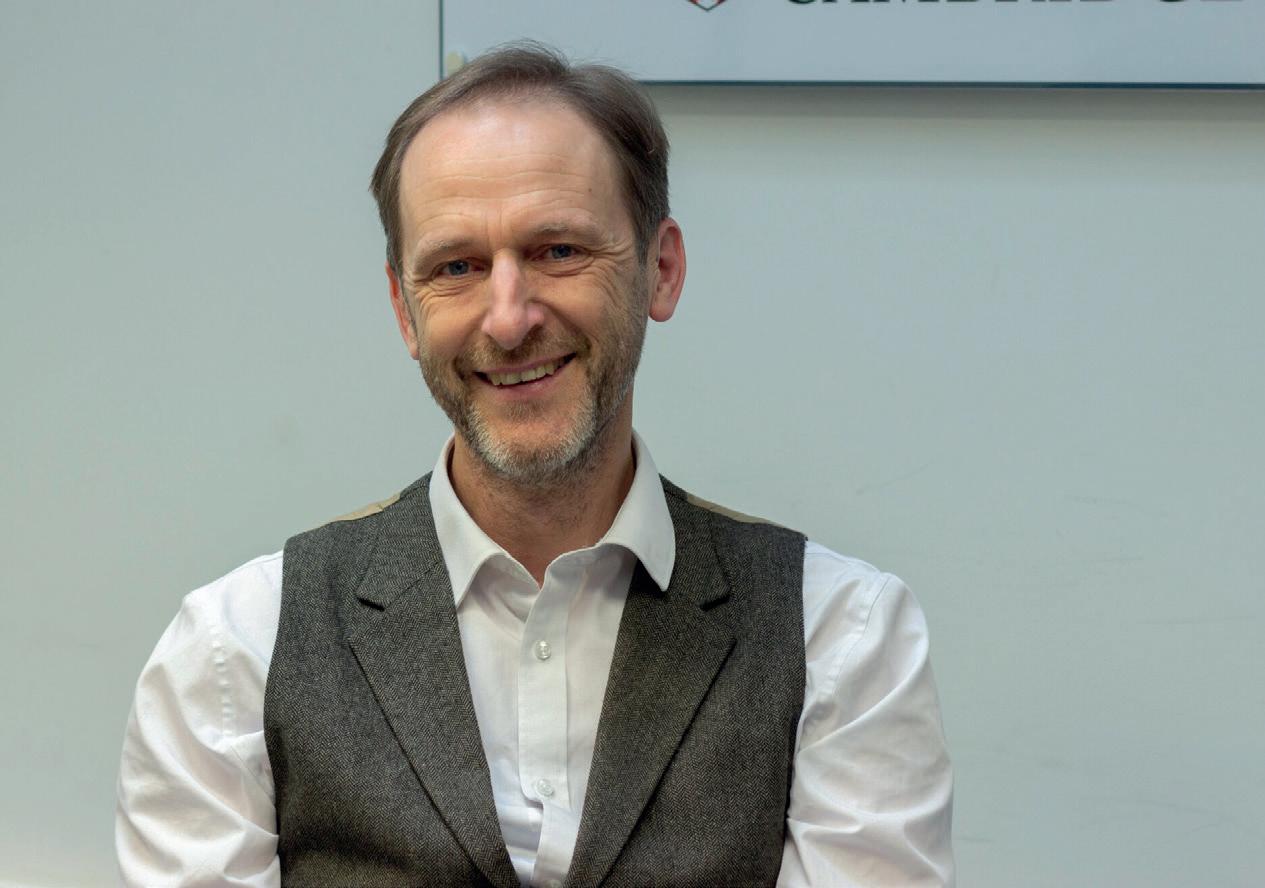
conditions through the creation of the UK’s first PSP & CBD biobank. It has laid the groundwork for real scientific momentum – and we’re ready to build on it.
PROSPECT created a new infrastructure for PSP & CBD research. Our Understood Research Appeal is the next critical step in our journey to end PSP & CBD. We aim to raise £2 million to unlock earlier diagnosis, explore treatment options and ensure consistent, informed care for everyone living with both conditions. There has never been a better time to harness the recent, unprecedented advances in science, medicine and technology for the benefit of people living with PSP & CBD.
Science is moving fast. Professor James Rowe, Consultant Neurologist at the University of Cambridge, featured in our appeal film, says he is ‘optimistic about the rapid changes in research.’ He said: “CBD & PSP have been at the heart of my research and clinical care over the last 20 years. I’m very optimistic about the ability of research to deliver results to transform the diagnosis and treatment people receive. At the moment many patients wait up to three years to get the right diagnosis to even begin a pathway of care and support.
“There are no treatments to stop this illness in its tracks or reverse it. But there are treatments within reach. PSPA wants to support transformational research with long lasting benefits for families now and in the future, but we need your help to join this community and take action for a future without PSP or CBD.”
Our Understood Appeal will fund a new generation of research grants that aim to improve diagnosis, fast track treatments and ensure care is equitable and informed. With donations already received, we have been able to award promising new research grants (see page 15).
As part of the appeal we have created our Understood –what does it mean to you, wall of support on our website. It is a place where every donation is celebrated and every story shared to build a growing legacy of hope. It’s where your name, or the name of someone you love, can become part of our progress in research.
There’s strength in numbers. And, in the fight against PSP & CBD, we need to be strong. We need people affected by PSP & CBD to support us.

UNDERSTOOD RESEARCH APPEAL WILL SUPPORT...
Anonymous
I’m donating in memory of my Dad who was much loved and will always be remembered. I pray so much that a cure for this cruel, horrible, debilitating illness is found one day!
£100 + £25 Gift Aid
Calum
For Steve and everyone suffering from PSP. Love you buddy.
£100 + £25 Gift Aid
Anonymous
Please keep researching and making people aware, the experience of this dreadful illness is made worse by the complete lack of knowledge and understanding especially by health professionals.
£40.00
Anonymous
In memory of Rowan’s dad, Mike
£10.00 + £2.50 Gift Aid
SHOW MORE
GIVE NOW
• Donate now to our Understood Appeal www.pspassociation. org.uk/research/understood or scan this QR code
•Visit our wall of support on our website
• If you would like to support the appeal in another way email understood@pspassociation.org.uk
• Quick and accurate diagnosis – on average, it takes over three years to receive a diagnosis of PSP or CBD. Earlier diagnosis can improve access to treatment and services at an earlier stage to improve quality of life. It would also increase the number of people eligible for clinical trials.
• Immediate treatment – there are currently no approved diseasemodifying treatments for PSP or CBD, and limited options to manage symptoms.

• Consistent care – access to specialist services is a postcode lottery. We want everyone affected to receive informed, coordinated care, no matter where they live, from educated health professionals who understand the complexities of living with a rare neurological condition.
Our Understood Appeal was started with a large legacy from Elizabeth Fiddler, who requested that we advance research into PSP & CBD. As a carer, Elizabeth saw first-hand the devastation PSP causes when her beloved husband was diagnosed. This was not something she could recover from, and on making her final Will, Elizabeth gifted her entire estate so PSPA could create change.
There are many incredible people from our PSP & CBD community helping to drive our Understood Appeal forward. Here are our Understood Appeal Ambassadors.
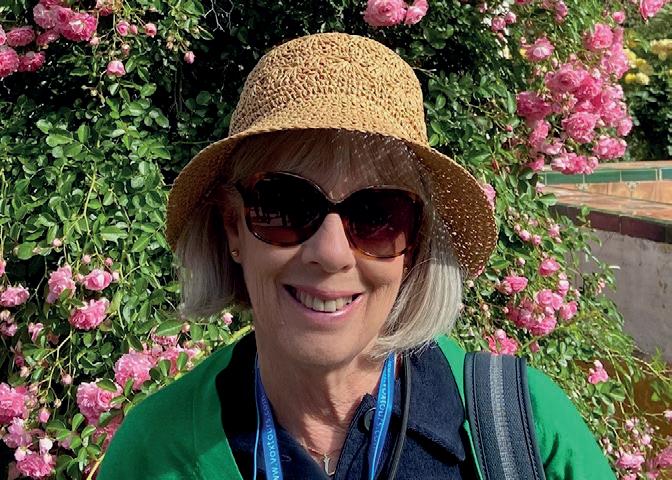
JON GARRARD, PSPA TRUSTEE AND FORMER CARER

“I’m excited to be part of what will be the boldest, bravest, step change for PSPA since the charity was founded. I’m committed to supporting the appeal because it is personal. I lost my dad, Chris Garrard to PSP, he is my inspiration.”
“From the time when my father was first diagnosed with PSP back in the mid-nineties, it has been such a help to have an organisation who truly understand what PSP is and what people living with the condition and their families go through.
“PSPA has come a long way over the past few decades, and more and more research into both PSP & CBD is going on. That is why I will continue to support this charity. I am hopeful that before too long we will understand these diseases better and that perhaps a treatment or even a cure may be found.”
AND JOHN
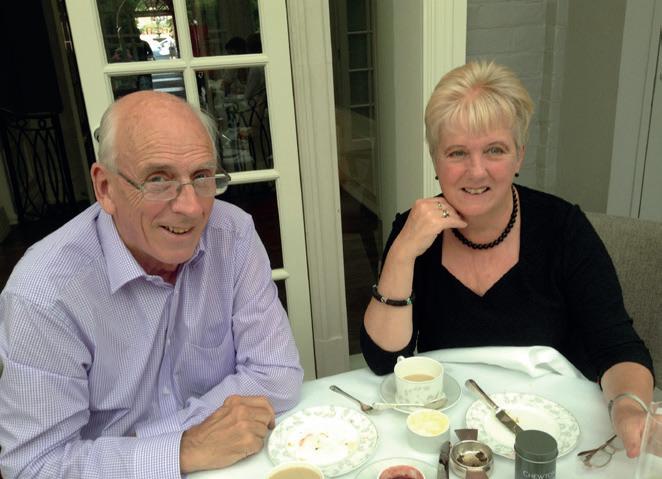
Mary and John have been PSPA supporters since Mary’s PSP diagnosis in 2020.
John said: “We have recently donated a substantial sum to PSPA’s Understood Appeal. PSP has been a cruel burden to Mary, but remarkably, she never complains, and we both realise that there are many others living with this awful disease who have not been so fortunate and have much more quickly, contracted this disease, and died from it within a much shorter time span.”
In October, Radio 4 will broadcast our Understood Appeal as part of its charity appeal production. Look out for the details in edition three of PSPA Matters, published in September.
At the end of April, PSPA released new funding to drive progress in PSP & CBD research. Four small grants of up to £25,000 and one larger grant of up to £250,000 were launched at the Tau Global Conference in London.

The funding comes from money raised so far through our Understood Appeal. As part of their applications, researchers will be asked to demonstrate how their research would contribute to one of the Understood Appeal’s three goals:
•Quick and accurate diagnosis
•Immediate treatment
•Consistent care
To reach a wider pool of researchers and healthcare professionals, PSPA Research Coordinator, Megan Hodgson, represented the charity at both the Global Tau Conference and the BNA Festival of Neuroscience, where she spoke about the funding opportunities available. We’re also sharing funding opportunities through partner organisations such as the Association of British Neurologists.
Each application will be reviewed by our expert-led Research Committee, chaired by Professor Karen Morrison. They are also reviewed by our Patient and Public Involvement Group, PRIM, ensuring the voice of people affected by PSP & CBD continues to inform the research we fund.
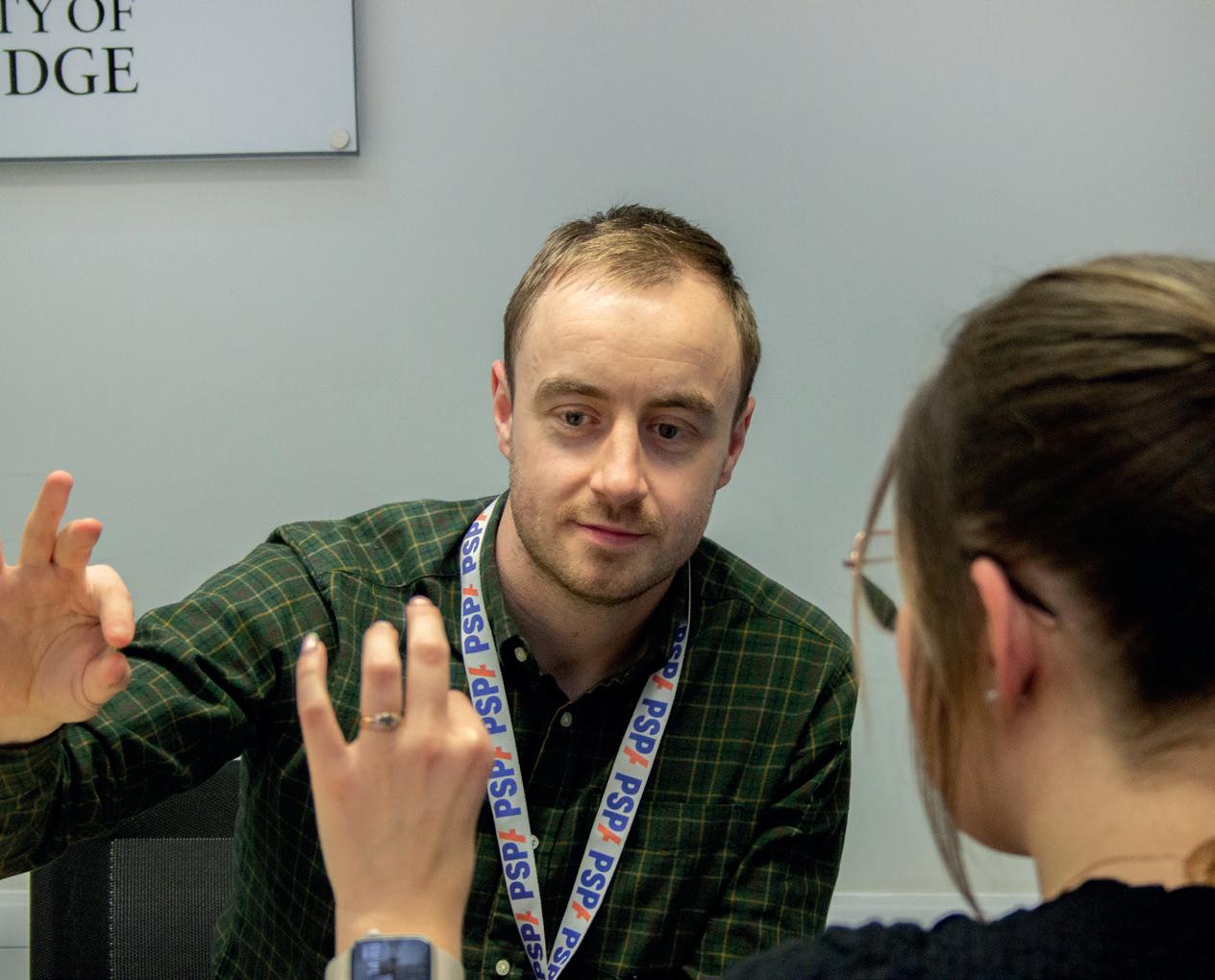
PSPA currently funds 9 research grants ranging from £3,000 to £265,000. This includes a PhD fellowship awarded to Dr Robert Durcan, to research the brains noradrenaline system in PSP. Noradrenaline is an important chemical to maintain healthy brain functioning, cognition and behaviour. Dr Durcan said: “With my funding from PSPA, I have been able to work towards delivering a clinical trial for patients with PSP that seeks to answer if we can improve symptoms by reversing this noradrenaline deficit.”
The area of the brain that produces noradrenaline (called the locus coeruleus) is devastated in PSP. The resulting noradrenaline deficit is associated with symptoms of apathy and impulsivity.
Applications for the grants close on 26 July for £25,000 projects and 29 August for £250,000 projects. We look forward to telling you about the funded projects in a future edition of PSPA Matters.
Lovely Thomas (known to her colleagues as Lovelyn) is a Social Worker in adult social care helping families navigate the complex system of healthcare and funding.

As a Social Worker within the Southwest region Local Authority, Lovely is part of a small specialist team focused on assessing eligibility for Continuing Healthcare (CHC) funding, a critical lifeline for many facing serious health conditions. Here, Lovely shares her experiences and insights on the importance of planning ahead and the support systems that can make a real difference to quality of life.
“There are many aspects to my role from conducting social care and carer assessments, to supporting someone to find respite or emergency placement. It is a varied role with many challenges, but it’s also incredibly rewarding to be able to support people in ways that make a real difference in their lives.
“One of our biggest challenges is the volume of cases. Some of my colleagues are handling close to
100 referrals a week. It’s an overwhelming workload, but we always strive to provide the best support we can to those in need. I generally see people when life has become very difficult. But people are incredibly resilient and are very grateful for any support they get.”
THE IMPORTANCE OF PLANNING AHEAD
“Planning and anticipating needs is really important. Sadly for some this is easier than others. For those with a rapidly progressing condition, it can feel hard to keep up, but it is important to try to anticipate future needs so you have time to get things in place early.
“For people diagnosed with PSP or CBD, I’d recommend getting a Lasting Power of Attorney. This ensures that your wishes are respected if you are no longer able to make decisions for yourself.
“For carers I would recommend having a back-up plan in case they get ill or are suddenly unable to provide care to their loved one. This is something I encounter frequently in my work, and it can help reduce stress when unforeseen circumstances arise.”
“A large part of my role is doing CHC assessments. CHC funding, provided by the NHS, can cover the cost of care for people with complex health needs. If people meet the strict criteria, CHC funding will be paid for by the NHS, but if they don’t, it is either care privately arranged by the family or Local Authority support which is means-tested.
“Any family member or health and social care professional can make a referral for a CHC assessment. It is a two-step process where the first step is a screening check, but the second stage involves a full assessment.
“I’m afraid a diagnosis of PSP or CBD is not enough on its own to receive funding. Assessments are based on four areas: the intensity of needs and the nursing input required, the unpredictability of the condition, the complexity, and whether the person is nearing the end of life. If they show high need they are more likely to get funding for CHC.
“For those who meet the criteria, CHC funding can significantly reduce the financial burden of care. However, if they don’t meet the criteria, we will explore other options. If someone has savings above the threshold - currently £23,250 – they will be expected to self-fund their care. This threshold has been set out by government and not the Local Authority.
“For those under the savings threshold, the Local Authority can help assess their situation and determine if they qualify for financial assistance. The benefits team assesses their contribution towards their care costs.
“If the person is in a nursing home, they are entitled to receive funding for the nursing contribution. This is worth around £200 per week and it does help towards care costs, which I know are very high. The funded nursing contribution is paid directly to the care home. People can arrange their care privately or they can ask the Local Authority for help in finding a placement.
“Following a CHC assessment if you are not happy with the outcome you can appeal. You can also contact the local Integrated Care Board and ask for an explanation on the decision made.”
“Caring for someone with PSP or CBD can be very challenging, and it’s crucial that carers have the support they need. A carer’s assessment allows us to identify what help the carer may need and also helps them better understand the options available to them.
“I would recommend to all carers to contact their Local Authority for a carer assessment as they might be eligible for support from their Local Authority. We see many carers who don’t know what support they are entitled to. They have cared for a love one for a long time and just see it as their day-to-day life.
“We are well aware of the vital role unpaid carers have and how they reduce the burden on an overstretched service. Making sure that carers have a good support network in place can make a huge difference to their mental and physical wellbeing.”
“Some families find themselves needing short-term care for their loved one. Whether it’s family members stepping in or securing a short-term placement in a care home, we work hard to ensure families get the support they need. However, we can’t always guarantee that emergency cover will be available immediately.
“If you do have savings under the threshold it can be a good idea to make yourself known to the Local Authority so that you are on their radar for if you do need emergency support in the future. And if you are above the threshold, it is worth familiarising yourself with nearby respite options in case of unplanned or emergency events.”
“ONE OF OUR BIGGEST CHALLENGES IS THE VOLUME OF CASES. SOME OF MY COLLEAGUES ARE HANDLING CLOSE TO 100 REFERRALS A WEEK. IT’S AN OVERWHELMING WORKLOAD BUT WE ALWAYS STRIVE TO PROVIDE THE BEST SUPPORT WE CAN TO THOSE IN NEED."
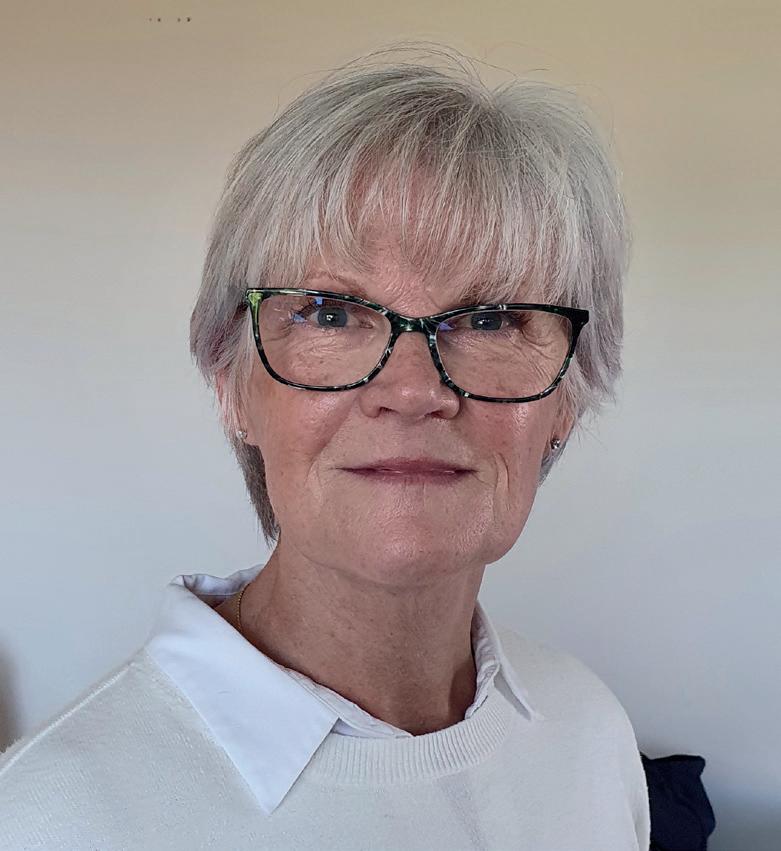
PSPA spoke to Karen Pearce, from The Wheelchair Alliance to answer the most common questions asked by people with PSP & CBD. The Wheelchair Alliance aims to transform the experience for wheelchair users in England through improved access, quality and effectiveness of services.
Having the right wheelchair at the right time provides mobility and independence. But it can be hard to know where to start. There are several ways you can get a wheelchair in England, depending on your circumstances and location.
There is variation in the provision of wheelchair services around the country. This variation leaves some people with PSP & CBD experiencing long delays in getting an NHS-supplied assessment and wheelchair, leaves others in wheelchairs unsuitable for their needs, and yet others having to pay for their own wheelchairs.
HOW DO PEOPLE GET A WHEELCHAIR ASSESSMENT?
People with PSP & CBD should be able to get a wheelchair assessment from the NHS. Your GP or other health professional can refer you to your local wheelchair service for an assessment. Unfortunately, there are waiting lists for NHS provided wheelchairs, so you might have to wait a few weeks for your assessment. There is a target that the majority of wheelchairs should be provided within 18 weeks of the wheelchair service receiving the referral, however the Wheelchair Alliance know some people are experiencing considerable waits and are lobbying for this to be addressed.
WHY DO I NEED AN ASSESSMENT?
It is vital to have an assessment by a person who is an expert in wheelchairs and postural management. A wheelchair that is the wrong size or does not support you correctly can lead to serious problems such as pressure sores. If you are being assessed by an NHS funded wheelchair service, you will discuss your needs and current condition with the team. Together you will consider your possible future needs and then you will
have a wheelchair prescribed. WILL I NEED TO PAY FOR A WHEELCHAIR?
Your referral will be screened by your local wheelchair service. If you do not meet their eligibility criteria, which differs from service to service, you will not qualify for a NHS wheelchair.
If you are getting a wheelchair from the NHS you will not need to pay for it. But this also means that the wheelchair does not belong to you, you are borrowing it from the NHS. You may be provided with a personal wheelchair budget. This is funding available to support people’s choice of wheelchair, enabling you to get exactly the right wheelchair for you. Your wheelchair service will guide you through the options.
Due to long waiting lists, poor provision or because they do not fit the funding criteria, some people buy their own wheelchair. You may also apply for additional funding through grants from PSPA to help with this.
IF I AM PAYING WHERE DO I GO TO SOURCE A WHEELCHAIR?
If you are buying your own wheelchair, look for a retailer that sells disability equipment and ensure they have a qualified wheelchair therapist (either an occupational therapist or physiotherapist) who can assess you and give you support in choosing the right wheelchair for your needs. Because you own the wheelchair, you are responsible for the cost of all repairs and maintenance. It is always sensible to consider whether you need some insurance in case of accidents.

DOES THE NHS PROVIDE WHEELCHAIRS TO PEOPLE IN CARE HOME SETTINGS?
Each area has their own eligibility criteria. There can be a range of mobility needs for people within a care home setting, from independent mobility needs, to being taken between rooms within the care home.
Some of these needs may be met by the local wheelchair service, who have a responsibility to assess a person’s mobility and postural management needs. However other requirements are outside of the remit of this service, for example the care home has the responsibility of providing wheelchairs that are used to transport residents between rooms. These wheelchairs would be used for more than one person, whereas a wheelchair provided by the wheelchair service is solely for the assessed persons use.
HOW DO I FIND OUT WHAT THE ELIGIBILITY CRITERIA ARE IN MY AREA?
Each wheelchair service should show their eligibility criteria on their website. If you are unable to access this information, you can ask your local service to send it to you.
I GET A CHAIR FROM NHS WHO LOOKS AFTER IT?
Getting the right wheelchair prescription early and reviewing it often will help keep you safe and comfortable in your wheelchair. Your service provider is responsible for keeping the wheelchair repaired and in good condition, but if this isn’t the case do talk to them.
• Seek an early referral from your GP to your local wheelchair service provider
• Ensure your current and future needs are taken into account
• Seek specialist support by contacting PSPA Helpline
For more information on the work of the Alliance visit www.wheelchair-alliance.co.uk and you may wish to consider becoming a member, which is free for wheelchair users.
If you have any questions please contact our Helpline on 0300 0110 122 or email helpline@pspassociation.org.uk
To improve earlier diagnosis and care for people with PSP, PSPA hosted its first online Masterclass of 2025 for healthcare professionals.
The Masterclass was aimed at giving ophthalmic professionals and other professionals who wanted to learn more about eye changes, the knowledge and resources they need to spot the early signs of PSP.
Titled ‘Neuro-Orthoptics in Progressive Supranuclear Palsy’ the session brought together 140 professionals from across the UK, including Specialist Optometrists, Student Orthoptists, Neuro Optometrists and health professionals from a range of different disciplines.
The event featured keynote speaker Dominic Burdon, Advanced Orthoptist at the Plymouth Ocular Motility Unit, and was chaired by PSPA Trustee and Head of Orthoptics at The Royal Berkshire Hospital, Greg Richardson. Together they guided the attendees through how to identify signs of PSP through early ocular signs – a key factor in helping to reduce delays in diagnosis.
The response from participants was overwhelmingly positive.
• 100% of attendees said that after attending the session the differences between ocular signs in PSP and other neurodegenerative conditions were clear to them.
• 92% of attendees said that following the session they felt more confident in referring people on to other health professionals if PSP was suspected.

For Kajal Satta, a second year MSc Orthoptics student at UCL, the session was an invaluable opportunity to deepen her understanding of a rare condition. Kajal said: “While my course covered PSP, I wanted to ensure that my knowledge remains up-to-date.
“The Masterclass covered key signs and symptoms to look out for that could indicate PSP. As I move forward in my career, I feel more confident in being able to identify signs of PSP. Given that PSP is often misdiagnosed, I believe it’s crucial for all Orthoptists to be equipped to spot the early signs, which can help improve diagnosis.”
This Masterclass will form part of a programme of Masterclasses to drive awareness and provide professional education to improve the standard of care people with PSP receive. In addition to this Masterclass, PSPA have developed a set of ‘Eye Red Flags’ that supporters and volunteers can share with your local opticians to spot the initial ocular changes associated with PSP. If you would like a copy, please contact the PSPA helpline on helpline@pspassociation.org.uk or 0300 0110 122.
“THE MASTERCLASS COVERED KEY SIGNS AND SYMPTOMS TO LOOK OUT FOR THAT COULD INDICATE PSP."
WANT MORE INFO?
If you would like to watch a recording of the Masterclass scan the QR code or visit www.pspassociation.org.uk/ information-and-support/forprofessionals/master-classes/
Research to unlock the secrets of PSP & CBD and support for those affected is happening right now because of the generosity of people who have left a gift to PSPA in their Will.

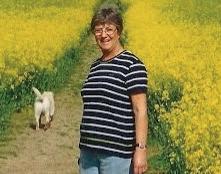
For retired researcher Janet Cameron, leaving a gift in her Will was a way to honour her brother, who sadly died from PSP in January. Janet said: "My brother was my executor, so when he was diagnosed with PSP I revised my Will. It was a good opportunity to leave a gift to the charity.
“Before I retired I was a research scientist and I know the importance of finding the cause of PSP. If we can't determine the cause, we can't find a cure. It is a comfort to know that my gift will help fund vital research. I hope that people diagnosed in the future are given more treatment options and therefore more hope than my brother had."
Jenny Allen was diagnosed with PSP in 2011. The support from PSPA’s Helpline and her Local Support Group inspired Jenny to leave a legacy to PSPA. Her daughter Katie said: “Mum’s legacy was not huge, but she wanted to give something back to the people who supported her. She always had the longer game in mind – finding a cure, while also realising how the Helpline is vital in the here and now when you need practical or emotional support with that personal touch. Leaving money in her Will to PSPA was, for Mum, an obvious way to help others dealing with this ‘brute of a disease’."
Every gift matters. Whether large or small, your legacy helps to create a future where treatments, support and even cures become possible. Writing a Will might feel daunting and expensive, but it’s easier and more affordable than you think. PSPA has partnered with Free Wills to offer a free online and telephone Will writing service to supporters in England and Wales. There’s no obligation to leave a gift to PSPA, but we hope you’ll consider it. If you are in Scotland or Northern Ireland you can find search tools on our website to help you find your own solicitor.
Leaving a gift in your Will is a meaningful way to honour a loved one. It funds groundbreaking research and provides vital support for people affected by PSP & CBD.
Your Will is your legacy. With it you can leave hope for families, answers for scientists and a better future for everyone affected by PSP & CBD.
YOUR GIFT...
£10,000
£20,000
could help us to reduce isolation and increase support for carers with regular support groups. could help us to improve awareness and understanding of PSP & CBD with healthcare professionals.
£30,000
could provide tailored support and information for a year from a Regional Helpline Care Navigator.
WANT MORE INFO?
For more info on leaving a gift in your Will just scan the QR code or call Lynn O’Gorman, Head of Fundraising on 01327 356 130 or email lynn.ogorman@pspassociation.org.uk
BY MEGAN HODGSON, RESEARCH COORDINATOR

Scientific conferences are a brilliant opportunity for academics, clinicians, researchers, pharmaceutical companies and charities to come together to learn, network and explore new ideas.
In April 2025, PSPA attended the Tau Global Conference which was hosted in London by the Alzheimer's Association, CurePSP and the Rainwater Charitable Foundation. These three American charities and research funders share a common goal with PSPA, to push forward research into tauopathies and improve the lives of people living with PSP & CBD.
As well as three members of our research committee being on the Scientific Advisory Board, we were silver sponsors of the conference, meaning our Chair of Trustees, Chair of the Research Committee, as well as our Chief Executive and myself, the Research Coordinator could attend.
With over 500 people attending in person and another 500 watching online, with representations from over 60 countries, it really was a global conference. This is so important to ensure that research represents all ethnicities and socioeconomic backgrounds.
We didn’t just hear about research into PSP & CBD. As a ‘tau’ conference, we heard from studies on both Alzheimer’s and frontotemporal dementia. Breakthroughs in more common conditions like Alzheimer’s may lead to a breakthrough in the rarer tauopathies due to their shared pathology. It was very encouraging to hear of the steps being taken in the Alzheimer’s drug discovery field.
During the morning of the first day we saw lightning presentations from nine researchers explaining their posters. These ranged from determining how genetic risk effects the mechanisms of tau pathology
clearance in Alzheimer's disease to novel tau-targeting small molecules in preventing neurodegeneration in a mouse model of tauopathies.
One very interesting talk from Anna Dreyer at the University of Cambridge showcased how socioeconomic deprivation wasn’t linked to a reduced survival time in data collected from the PiPPiN study. However, deprivation was associated with a quicker time to care home admission. One of the reasons suggested for this was the cost of good quality home care and the difficulties of accessing council paid for care.
The end of day one saw the Rainwater Prize for both Innovative Early-Career Scientist and for Outstanding Innovation in Neurodegeneration. The first, awarded to Bess Frost at Brown University in America, recognised her original contributions to new areas of tauopathy research, including the transmission of unique tau proteoforms and the activation of retrotransposons in disease.
Dr Kaj Blennow from the University of Gothenburg in Sweden was awarded the prize for outstanding innovation for his development of novel cerebral spinal fluid (CSF) and blood-based tests for Alzheimer’s disease-type tau pathology and his overall impact on the field of neurodegenerative research.
Day two began with undoubtedly the most important and moving session of the conference. A panel of people with lived experience speaking to the academics, researchers and pharmaceutical companies, explaining what it’s like to live with PSP, CBD or a MAPT frontotemporal dementia (FTD) genetic mutation.
The session was Chaired by Kristophe Diaz, the CEO of CurePSP. Firstly, Paul Johnson who lives with PSP, accompanied by Fariba Mansouri-Johnson, explained how PSP took away his ability to edit the theatre magazine he loved dearly. He first noticed symptoms during his regular 5km runs where he began to observe his lack of balance and changes in gait.
Beth Shepeard Walwyn and her husband Hugh said it wasn’t until she had retired from her job as a primary school teacher and began tutoring that the symptoms of CBD became noticeable. Beth said: “I became unable to check and mark work and started to struggle to put my arms into my coat.” Paul and Beth both spoke bravely about what PSP & CBD had taken from them.
Then we heard from Linde Jacobs about what FTD would in the future take from her. Linde, like her grandmother and mother, has inherited a MAPT FTD
gene mutation meaning that she will get FTD in her lifetime, alongside her two sisters. Devastatingly, each of their children has a 50/50 chance of inheriting the genetic mutation. Linde spoke with such passion about how research is essential, knowing that it will most likely not save her, but it may offer a different path for her children.
The words of Paul, Beth and Linde led to the longest and loudest round of applause of the conference. It is essential that pharmaceutical companies, lab bench researchers and academics that are not regularly in contact with patients are reminded why the work they do is so important, and that there are real people behind the data, blood samples and questionnaires they collect.
Later sessions of the day offered hope. Dr Adam Boxer from the University of California, San Francisco spoke about the launch of the PSP Trial Platform (PTP). This new clinical trial structure which increases the likelihood of being given a drug over placebo and reduces costs by testing multiple drugs against a single control group will be rolled out across 50 sites in the USA, supported by a $75 million grant from the National Institute of Aging.
The drugs AZP2006 and AADvac have been chosen as the trial compounds, the first aims to restore lysosomal function while the second is an immunotherapy which produces antibodies to target pathological tau. Although not recruiting from the UK, it is good to see larger clinical trials are being funded and breakthroughs would have a worldwide impact.

The next Tau Global Conference will be held in Washington D.C. in May 2026, with plans for PSPA to co-host Neuro2026 in London in Autumn 2026 alongside CurePSP.
Professor Dan Smith, Department of Psychology, Durham University is investigating the effectiveness of prism glasses in people living with PSP. Here, he explains why this is so important.

PROFESSOR DAN SMITH
People with PSP commonly experience a paralysis of the eyes, which prevents them from looking downwards. This makes everyday tasks like reading, eating or using devices challenging. Prism glasses, which bend light from the lower visual field to allow users to see down, are often recommended. However, despite their promise, little scientific evidence supports their usefulness for people with PSP.
Prism glasses have been used effectively for conditions like double vision. We did a literature review last year. We found only two published studies and both were single case reports. That’s nowhere near enough to justify recommending them widely. So we decided to ask people with PSP to share their experiences.
We designed a questionnaire that was completed by 50 people living with PSP. About half had never heard of prism glasses. Of those who had, some tried them and gave up because they were too heavy, lacked instructions, or just didn’t seem to work. But there were also glimmers of potential. Many who used them described wearing them while eating, one of the tasks where looking down is essential.
One of the reasons why people gave up on prism glasses may be the lack of training or guidance on how to use them. Lessons from stroke rehabilitation show that training can improve outcomes, yet no such programme exists for PSP. More research is needed to develop evidence-based guidelines and training to improve the use and effectiveness of prism glasses for people with PSP.
This is why we want to investigate this area further so we’re applying for a £25,000 grant from PSPA to run a pilot study. The pilot study will provide people with PSP prism glasses and guide them through tasks, and ask them to feedback on what works and what doesn’t. We are hoping to answer questions such as, how long does it take to adapt? Which tasks are they useful for? What kind of prism lens helps in different stages of the disease?
PSP is complex and doesn’t present the same way in everyone. Some people have severe eye movement issues; others don’t. The ability to adapt to the shifted visual input varies wildly. And because PSP affects motor control, some people may never adapt to the glasses—no matter how well-designed they are.
So we’re going back to basics. We’re asking people how they experience the glasses and will be speaking to them about how to improve them. This may be lighter frames, adjustable prisms, or simply better instructions. An interesting technological development is custom-made glasses with flexible prism inserts, which the wearer can adjust for reading or eating. We’d like to explore the value of this technology to people with PSP.
Alongside my research into prism glasses, I’m also looking at what kind of attention problems people with PSP have. With funding from the Dunhill Medical Trust, my team did a study where they asked 29 people with PSP and 29 people with Parkinson’s disease to complete a five minute test called the Bells test as part of a larger research project on attention and memory in PSP.
The test measured how quickly and accurately a person can find and circle target objects presented among distractor objects. Successful performance relied on eye-movements to search through the objects, arm movements to circle the objects, and planning skills to implement an effective search strategy. The results showed that the Bells test correctly detected PSP in 100% of patients with the disease.
People with PSP currently wait an average of three and a half years for an accurate diagnosis. This is very harmful, not just for planning care but also for clinical trials where it is always more effective to test new therapies in people early on in their disease progression.
The next stage is to conclusively establish the effectiveness of the Bells test at accurately classifying PSP and Parkinson’s disease at an early stage of disease progression with a much larger group. To do this we are applying for a major National Institute for Health and Social Care Research (NIHR) grant worth £4.6 million.
If we secure this funding we will follow over 600 people across several years to see whether this test does improve earlier diagnosis. We also want to design the study to be as accessible as possible for people with PSP. Many people struggle with mobility so we want to conduct research in the community rather than in the clinic. Participants will be tested three times at six-month intervals. We will analyse whether the changes in scores over time can accurately predict which patients go on to a confirmed diagnosis of PSP.
"WE’RE ASKING PEOPLE HOW THEY EXPERIENCE THE GLASSES AND WILL BE SPEAKING TO THEM ABOUT HOW TO IMPROVE THEM. THIS MAY BE LIGHTER FRAMES, ADJUSTABLE PRISMS, OR SIMPLY BETTER INSTRUCTIONS."
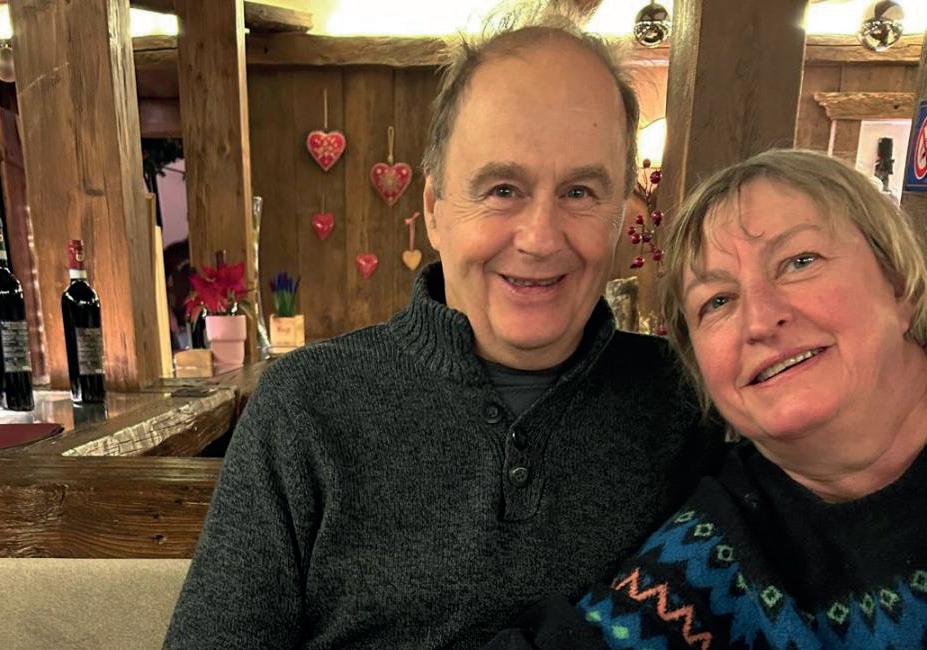
Catherine Taylor is a carer for her husband Andrew, who was diagnosed with CBD in November 2022. She also cares for their daughter who has complex additional needs. As a primary carer for two people, when Catherine needed an emergency unplanned hospital admission, she was worried what would happen to Andrew and her son and daughter. Here, she shares her story.
“Both Andrew and I took early retirement after Andrew’s diagnosis of CBD. We had sensed something was wrong around a year before that – his right hand wasn’t working properly; he was struggling at work and his forgetfulness was becoming more frequent. A Physiotherapist's suspicion led us to a Neurologist, and the diagnosis confirmed our fears.
“Faced with this reality, we both took early retirement. Andrew had worked in legal consultancy, and I’d been involved in leadership development. Caring for Andrew and our daughter, who has complex additional needs, would have been too much to manage alongside a fulltime job.
“Andrew has adjusted to retired life really well. He spends his time walking the dog, reading books and listening to music. We are both well aware that he will deteriorate and there will be a time when he won’t be able to do things. Until then we are determined to make the most of our time together. Since his diagnosis we’ve travelled, spent time with family, and created memories that we will cherish forever.
“We were managing quite well until I had a fall in February and was taken into hospital. I was told I needed hip replacement surgery. My immediate concern wasn’t the surgery – it was Andrew and our daughter. Who would care for them? How long would I be away?
“It’s moments like these where the huge responsibility of being a carer becomes so evident. They depended on me and now I was likely to be in hospital for over a week. I messaged the CBD What’s App group to ask what on earth people do in this situation?
“I told the nurses I was the main carer for both my husband and my daughter. I believe that influenced the care I received. Initially they had mentioned doing a partial hip replacement. But upon hearing how I was a carer they decided to do a full hip replacement so the need for additional surgery down the line would be reduced.
“Fortunately, my son, who was still at home before heading to university, stepped in. It was a difficult time for all of us. Andrew struggled with my absence, feeling unsettled without me and unable to sleep. We were so grateful that support came from so many places. Friends brought meals and Andrew’s sisters’ stayed for a few days, cooking, walking the dog and keeping him company.
“It showed me how important it was to accept help, and to have a back-up plan in case anything happens to me. I had resisted the label of ‘carer’ for a long time, perhaps because I had always seen myself as a professional first. But now I am glad to say I am a carer. So many people in my position juggle careers, caring and family responsibilities, often without recognising the weight they carry – until something forces them to stop.
“This experience has also made me think about the future. Andrew and I have started discussing lasting power of attorney, care plans and end-of-life wishes. It’s not easy, but I’ve seen first-hand how having these conversations can make things easier for loved ones. I’ve also begun streamlining our finances, gently encouraging Andrew—who is a bit of a hoarder—to declutter and simplify things.
“I know things will always be changing and we have to adjust to those changes. Even though Andrew is still quite mobile there are daily frustrations. Andrew struggles with simple tasks like tying his shoelaces or putting on the dog’s harness. Having a daughter with such complex needs has made me good at researching, advocating and navigating the healthcare system to find sources of support.
“PSPA has been a huge help. We’ve both had counselling sessions through PSPA and the physiotherapy sessions have been beneficial to Andrew, helping him stay as active as possible. We’ve also attended a virtual PSPA Support Group where we found out some good tips, but it was hard to see people more progressed than Andrew.
“When you are a carer you get used to putting their needs above your own. But having been admitted to hospital I see the importance in learning to prioritise myself, too. Andrew and I belong to a health club, where we relax together in the spa. I’ve also started taking short breaks with friends while arranging for Andrew to spend time with his own friends.
“Being a carer is not always easy, but with the right support, planning, and moments of joy along the way, I know we can face whatever comes next.”
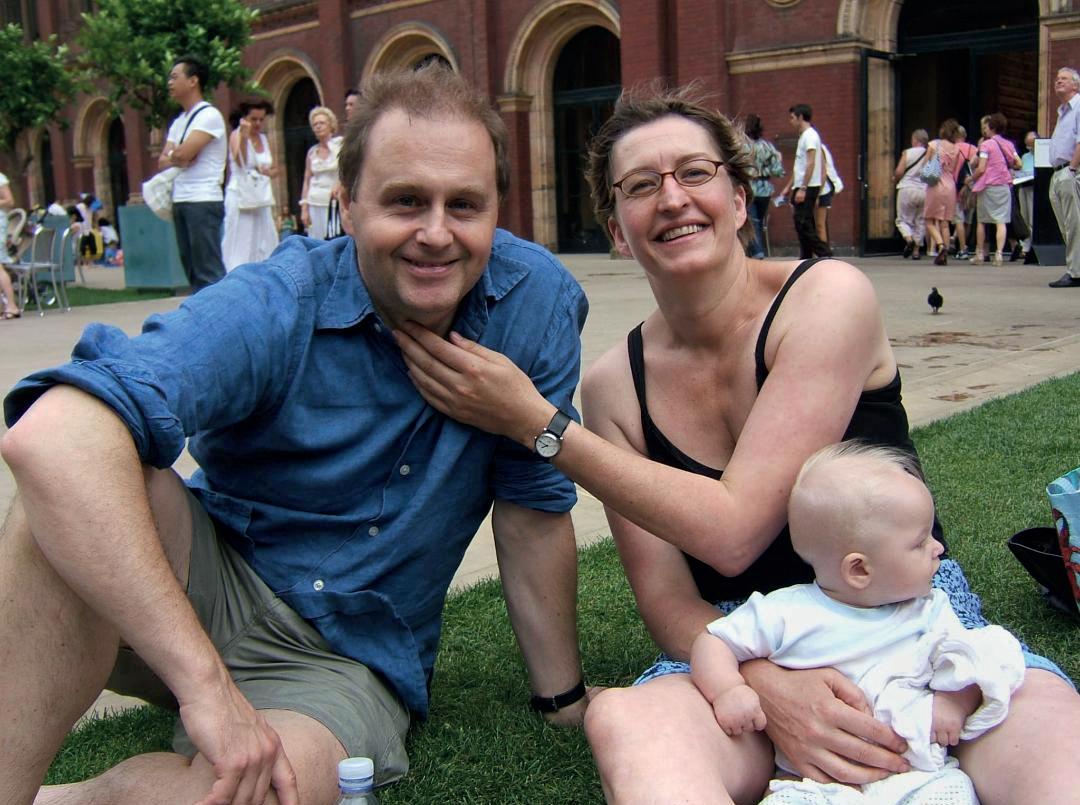
"PSPA HAS BEEN A HUGE HELP. WE’VE BOTH HAD COUNSELLING SESSIONS THROUGH PSPA AND THE PHYSIOTHERAPY SESSIONS HAVE BEEN BENEFICIAL TO ANDREW, HELPING HIM STAY AS ACTIVE AS POSSIBLE."
What happens if you are suddenly unable to care for your loved one? Life is unpredictable and illness or accidents can strike at any time. That’s why having an emergency plan is essential.
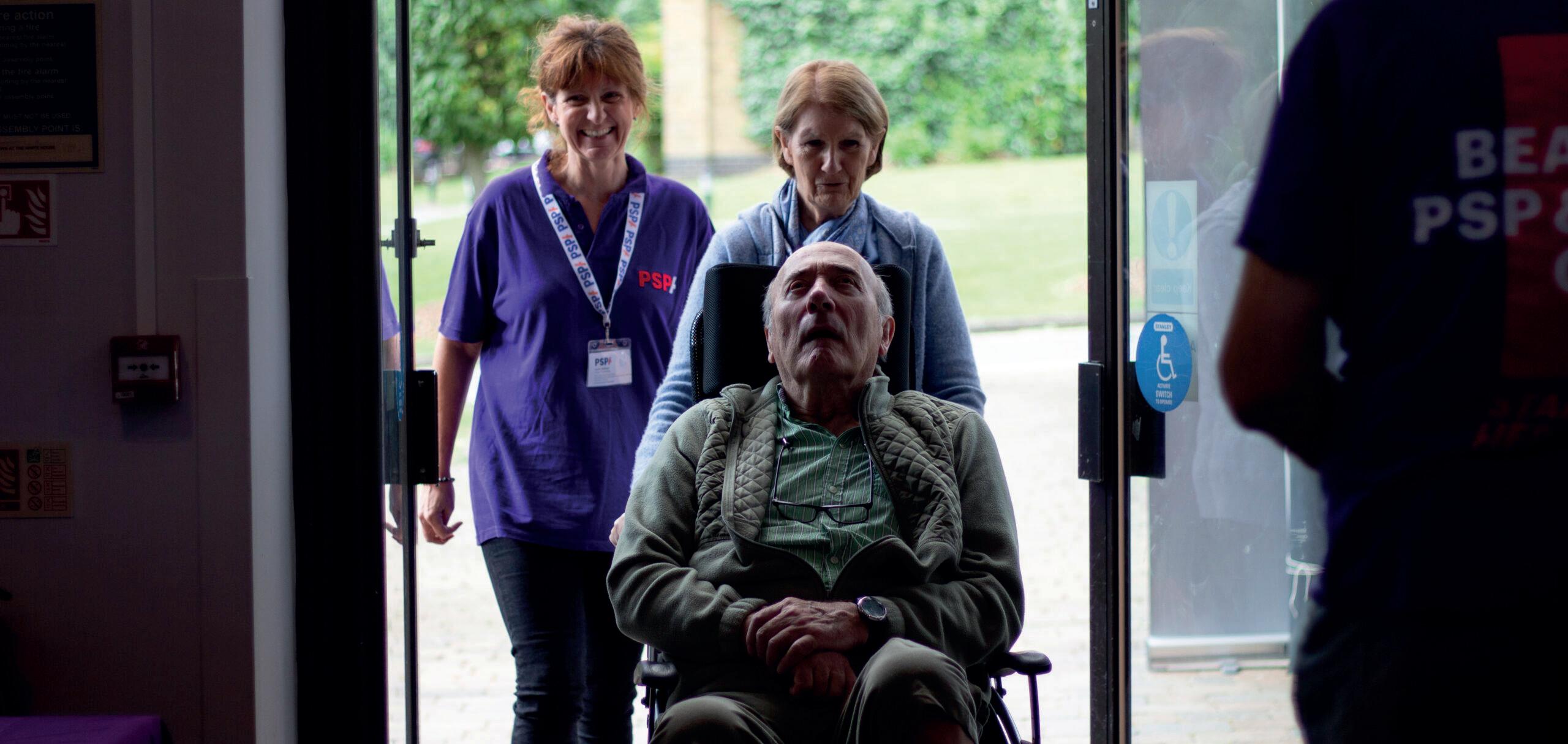
Simply scan the QR code to download the 'All About Me' leaflet.
As a carer, you are often the main source of support for a loved one, giving your time to ensure their wellbeing. But what happens if unforeseen circumstances leave you temporarily unable to provide care? In these situations, it’s essential to have a plan in place to ensure the person who relies on you is still well looked after, so you are able to make a good recovery.
If you suddenly fall ill or are taken to the hospital, it's important to inform medical staff that you are a carer and that someone depends on your support. In many cases, hospital staff can help fast-track your care or contact someone who can step in and provide care until you're able to return.
Local carer services and councils offer emergency carer schemes to provide help during crises. These schemes, which are often free, aim to ensure that there’s a support system in place. A key feature is a carer ID card, which includes a number for a 24hour call centre. If you’re ever in an emergency situation and unable to communicate, this card alerts professionals to your caring role. The call centre then uses your emergency plan to make sure someone trusted can step in and provide care.
1. The name, address and contact information of the person you care for.
2. List the people you and your loved one would like to be contacted in an emergency.
3. Include details of any medication the person takes, where it’s stored, and any ongoing treatment needs.
4. Note any allergies or medical conditions that need attention.
5. Write the contact details for their GP and pharmacy.
6. Detail any care services they receive, mobility aids they use, or continence products required.
7. Complete PSPA’s ‘All About Me’ leaflet for your loved one and list their likes and dislikes so the person stepping in to cover you has all the information to understand your loved ones needs.
8. Build a local support network of people who can help.
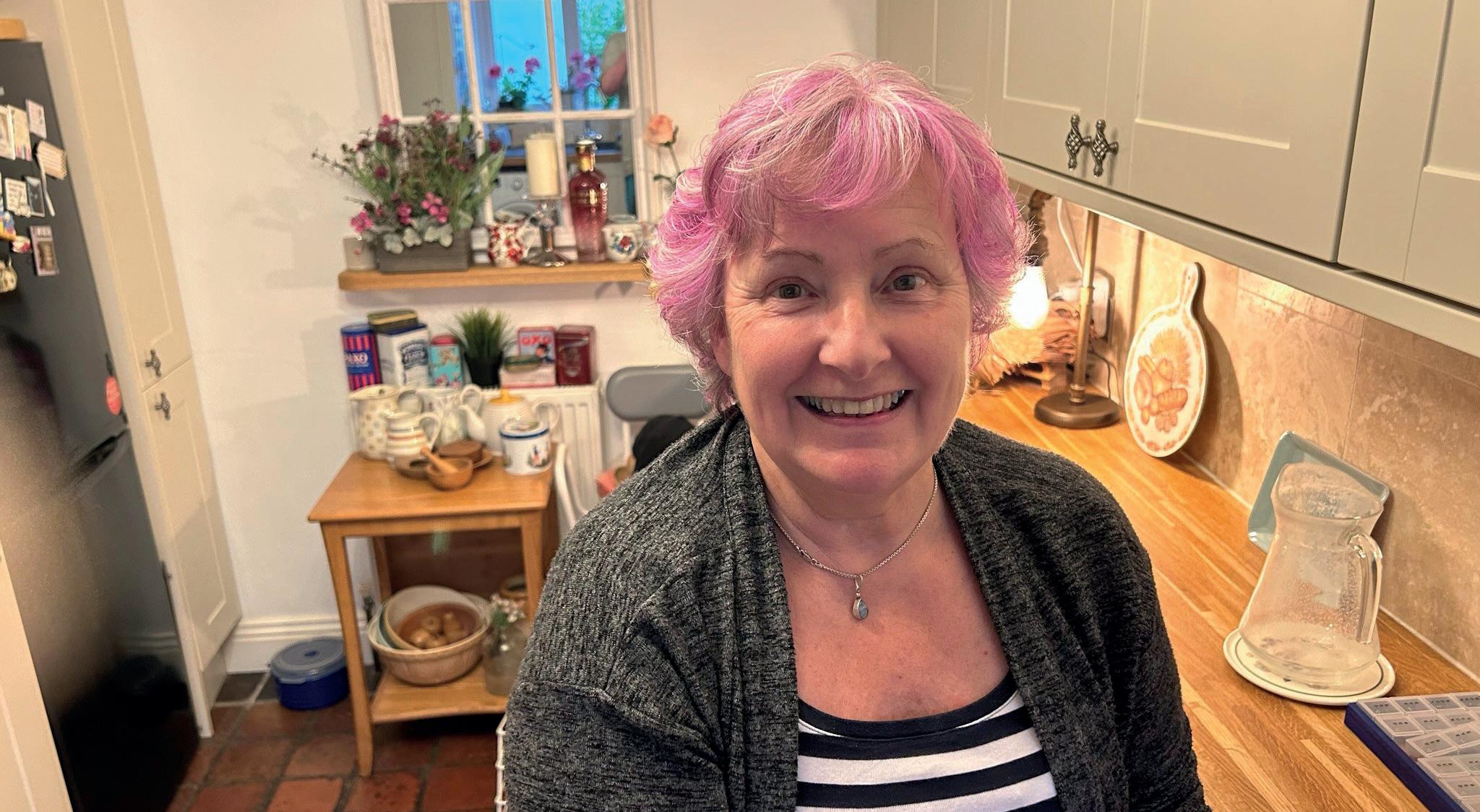
Jan Collingsworth was looking forward to days filled with gardening and long walks after taking early retirement from teaching. Sadly her plans changed drastically when she received a diagnosis of PSP in 2023. No longer able to go on long walks or garden, Jan is determined to continue her passion for writing and is currently writing a book to help children understand PSP.
“I love words.” Jan explains. “I love the freedom writing gives me. Sometimes I can pick up a pen and start writing only to find that two or three hours have passed.”
Jan’s journey to diagnosis began with a series of concerning symptoms: poor balance, mobility issues, memory lapses, and double vision. Initially, she thought they were unrelated – just the signs of ageing. It was her Optician who first noticed something more serious and referred her to neurology. “Several months later, I learned they were all symptoms of one condition – PSP,” she says. The diagnosis was devastating, and for a time, Jan feared the worst. “It took several weeks before the understanding sunk in, and then I thought death was imminent.”
Jan has always had a passion for writing and despite her progressing symptoms she is determined to continue. Jan said: “At one point, I couldn’t hold a pen, my fingers were swollen and stiff. I cried, but I wasn’t going to give in.” She used a soft ball to keep her fingers moving and returned to her writing, even when she couldn’t read it.
For Jan, writing has become a way to manage her emotions. Jan said: “I keep a journal of my PSP journey which I write in. Keeping my journal helps me to process things. I often re-read it and wonder why this has happened to me. I don’t dwell on it though but it helps give me a sense of perspective.”
Jan is working on a children’s book about PSP. Jan said: “This book is a ‘way in’ for parents to explain PSP to their children. It is aimed at gently explaining what PSP is and what might happen to their loved one. This is such a complex subject that it needs to be handled with compassion and sensitivity.”
Though Jan is no longer able to do the things she loves like walking or gardening, she remains focused on her writing. “Writing is a part of me and will always be important. It’s funny to think my books will be ‘out there’, wherever that is, long after I’ve gone.”
PSPA Director of Policy and Influencing Mark Jackson explains how you can help PSPA shape the future for people living with PSP & CBD by taking part in our PSPA Survey in July.

Everything we do is driven by the needs and priorities of people living with PSP & CBD, their carers and their loved ones. From the services we provide and the support we offer, to the research we fund and the campaigning we undertake, it’s vital to us that your experiences and priorities are at the heart of what we do.
Last year, many of you will have completed My Neuro Survey 2024, which was conducted by our partners at the UK Neurological Alliances. My Neuro Survey is the largest single source of patient experience data for people living with neurological conditions in the UK, and the insights we and our partners have gained from the results are already informing our work to lobby governments, local NHS systems and local authorities to improve support for people living with neurological conditions.
In order to ensure that everything we’re doing at PSPA is informed by your priorities and experiences, later this year we will be launching the third PSPA Survey. We’re interested in hearing from you about your experience of healthcare services, your life, and your views on research. For the first time, we’re also including questions for PSP & CBD carers to learn more about the impact of caring on those who support people living with the conditions.
Our previous two surveys in 2016 and 2022 have helped PSPA to ensure we’re providing the services and support that people living with PSP & CBD need and have informed our priorities for awareness raising and campaigning activity on behalf of the community. Our GP Red Flag poster campaigns were both inspired by results of our previous surveys, and when you told us that the PSPA website was one of our most useful services, we invested more into the site.
By taking part, you’ll help us understand more about who is affected by PSP & CBD, about how diagnosis and care for the conditions are working, about how PSP & CBD affect your life, and about your views on the services we provide. The information you give us will help PSPA better support and campaign for people living with PSP & CBD – both now and into the future. You can read about the results from the survey in PSPA Matters later this year.
"WE’RE INTERESTED IN HEARING FROM YOU ABOUT YOUR EXPERIENCE OF HEALTHCARE SERVICES, YOUR LIFE, AND YOUR VIEWS ON RESEARCH."
Our 2025 Family Day will take place on Saturday 28 June at Kent’s Hill Conference Centre, Swallow House, Timbold Drive, Kents Hill, Milton Keynes, MK7 6BZ.
The event will provide an opportunity to get together in a relaxed setting. Our programme will include a Rare Minds workshop on dealing with a diagnosis and the impact of living with a rare condition, a talk from Ciara Mackie, Dietitian about the best diet for people with PSP & CBD and also a talk by Neurologist Negin Holland.
Art therapist Zoe Gilmour will be holding a drop-in session throughout the day. People with PSP & CBD, their carers and loved ones are welcome to call in and either participate in making some art, or simply watch others and have a chat.
This event has been designed for people living with PSP & CBD, family members of all ages, carers, and friends. PSPA volunteers are also welcome.

BOOK YOUR FREE TICKETS
Scan the QR code to book your tickets through Eventbrite. We look forward to seeing you there.
Recent research has found there is no link between genetic variations (repeat expansions) of C9orf72 and the development of PSP or CBD.
The research, led by Dr David Vaughan at UCL and part funded by PSPA, investigated the impact of varying lengths of C9orf72 repeat expansions. Large expansions in this gene are known to cause amyotrophic lateral sclerosis (ALS) and frontotemporal dementia (FTD).
Dr Vaughan and his team analysed the gene in 626 people who have been diagnosed with PSP, CBD or other atypical Parkinsonian conditions, alongside a control group. As part of the analysis, they measured the length of the C9orf72 expansion and analysed if there was a link between the size of the gene and if and how brain disease develops.
The study found no significant link between variations in the C9orf72 gene and the development of PSP or CBD. Dr Vaughan said: “The C9orf72 gene is complex, and while large expansions are important for ALS and FTD, smaller expansions are not clearly linked to the development or progression of brain diseases like PSP & CBD.
“Although this study did not successfully find a gene that could potentially be used as a target for treatments of the disease, what it has done, is to eliminate factors, which is just as important.
“Further research is now needed, recruiting a larger cohort of participants, to establish in what way the larger expansions of C9orf72 impacts on PSP & CBD. Links to other factors such as ‘methylation’, which is a chemical modification of DNA and may also impact development of disease, is also worthy of investigation.”
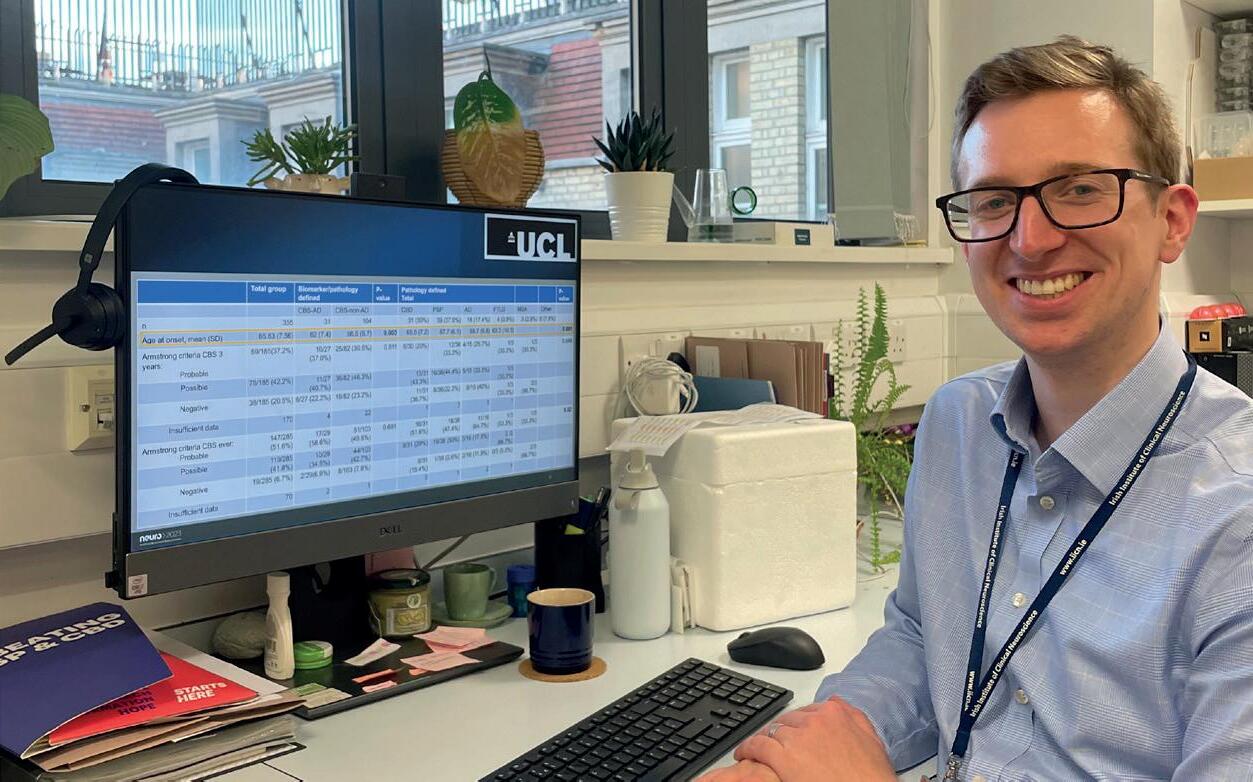
Volunteers are the lifeblood of PSPA, supporting our PSP & CBD community. Among our incredible team of volunteers are two people at very different stages of their volunteering journeys, yet united by their commitment to helping others.

For Rakesh Kumar, volunteering isn’t just something he does – it’s part of who he is. The Physiotherapist and PhD student first decided to get involved after seeing lack of local support in North Wales for people with PSP & CBD. Despite a demanding job, a family and researching for a doctorate, he is still committed to volunteering.
“I’ve always been passionate about charity work”, Rakesh shares. “Every little bit of time and effort you give can make a difference, and you never know when you might need support yourself.”
Originally from India, Rakesh moved to Bangor University for his Master’s degree. With a background in neurology, he was already familiar with PSP & CBD. He said: “Back in India, I’d worked in neurology, so I was familiar with these conditions, but I hadn’t realised how rare they were in the UK.
“When I started working with people living with PSP & CBD, I noticed many of them had to travel to England

to attend support meetings. That’s when I decided to set up a Support Group in North Wales.”
Rakesh worked with PSPA to set up bi-monthly meetings for people with PSP or CBD living locally. Rakesh said: “We wanted the group to be a place where people feel heard and connected, and where they can share experiences and learn from each other. We also invite professionals, such as Dieticians or Social Workers, to discuss what support is available from the NHS and social services.”
Last year Rakesh was awarded an MBE in recognition of his charity work. “The experience of being inside Windsor castle, surrounded by so much history, was incredible. My family came with me, and it was such a special occasion.”
Despite being so busy with his work, volunteering remains a big part of Rakesh’s life. Rakesh said: “I’m balancing my work as a specialist Physiotherapist with my role as a part-time PhD researcher, running research projects, being a good dad as well as supporting a few charities.”
Natalie Smith is at the beginning of her volunteering journey. In 2023, Natalie’s mum died from PSP. One year later, Natalie began volunteering at her local Kent Support Group.
Natalie said: “Mum was first diagnosed with Parkinson’s disease, but we knew something wasn’t right. Her medication wasn’t working, and she was getting worse. After more tests, she was diagnosed with PSP. “She was referred to UCL for a clinical trial. Sadly, after some tests she was deemed not suitable because she also had a cross over with CBD. This was a huge disappointment. We kind of just muddled on. Dad was determined not to take Mum to the Local Support Group because he didn’t want her to see what might come next. I think it was the wrong decision, but I respected their choice.”
Through her employer, Natalie can volunteer 32 hours annually, and the company donates $250 per eight hours of service. After reaching out to PSPA, she was introduced to her local support group leaders, John and Emma.
“I basically help in any way that’s needed, such as delivering teas and coffees, assisting with activities, and helping with the monthly picture quiz,” she shares. “I arranged for my mother-in-law, a qualified yoga instructor, to come along for a session where she did some seated yoga.
From volunteering at the group Natalie sees how valuable they are to people affected by PSP or CBD. “I really wish my parents would have given it a go. I think Mum would have liked it. They would have also heard about things like voice banking, how to navigate the care system and where to go for financial support, which I ended up researching myself. Had we attended the group, I would have had more of an idea on where to start to get the support we needed. I also think Dad would have benefited from talking to other carers."
Despite their different paths, both Rakesh and Natalie share a belief in helping others. “I think Mum would be proud I’m now a volunteer for PSPA,” Natalie said. “I want to be there for others who are going through what we did and help PSPA in any way I can. It is nice to do this in Mum’s memory.”
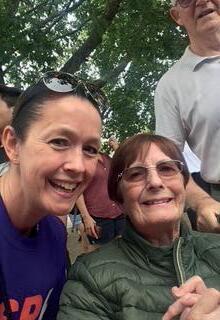
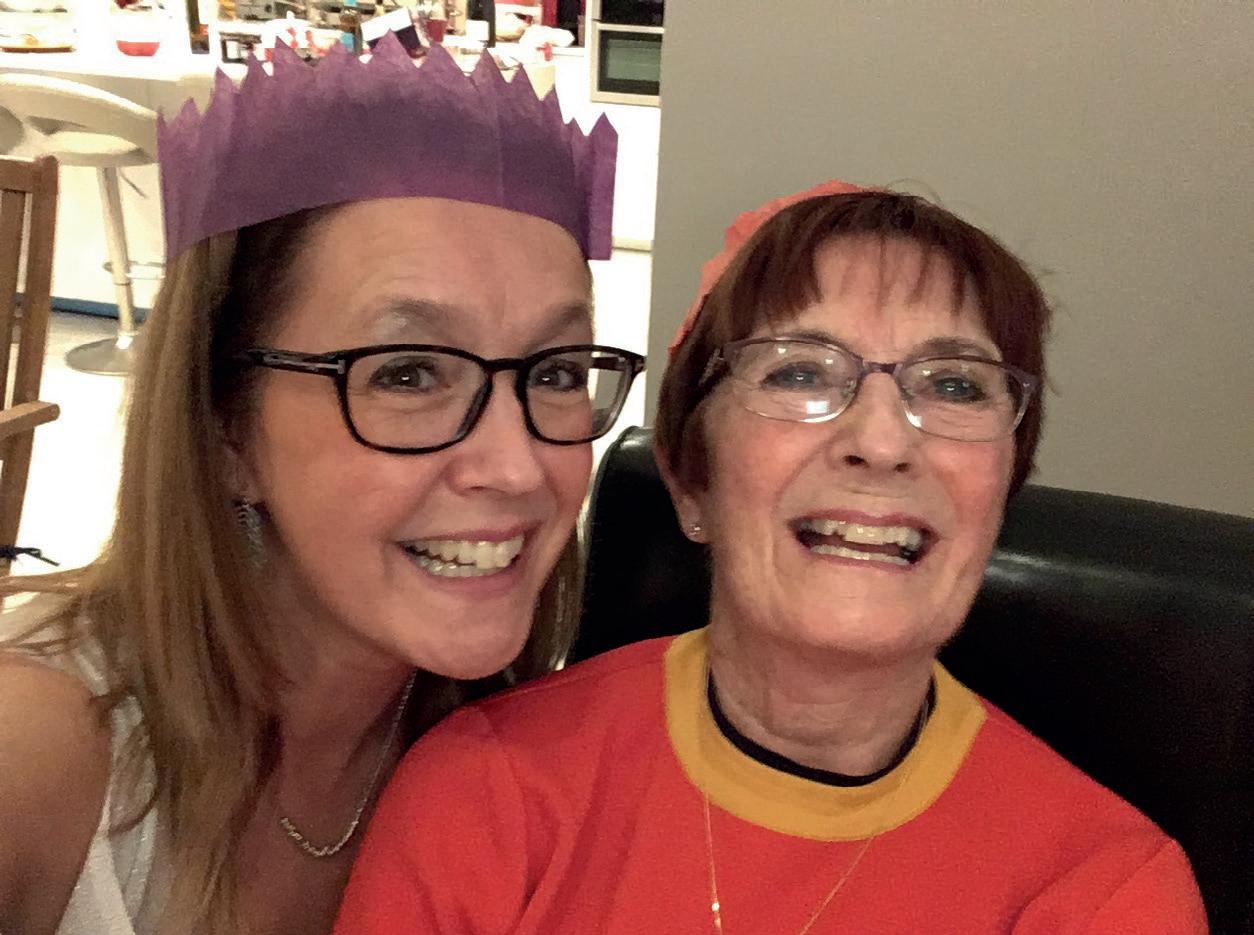
"I BASICALLY HELP IN ANY WAY THAT’S NEEDED, SUCH AS DELIVERING TEAS AND COFFEES, ASSISTING WITH ACTIVITIES, AND HELPING WITH THE MONTHLY PICTURE QUIZ."
Annice Thomas is a Social Worker with 18 years of experience working with children and families. She is also an unpaid carer for her dad who has PSP. Here she shares her story.

“When Dad first started to show signs that something was wrong, we never suspected PSP even though we knew about the condition. Dad’s brother had PSP a few years before Dad received his diagnosis. My uncle sadly died last year in March 2024.
“When my uncle was diagnosed we hadn’t heard of the condition. His symptoms progressed quickly, and both his mobility and speech deteriorated rapidly. Watching my aunt struggle with caring for him was heartbreaking. I had a front row seat to the horrible reality of PSP. My uncle died last year, and now, my dad – who had been so close to his brother – was facing the same diagnosis.
“It was a tough pill to swallow. Dad’s diagnosis came nine months before my uncle died. Dad was always such an active man, but gradually he had started to

TWO BROTHERS HOLDING HANDS, ONE LIVING WITH PSP AND ONE SOON TO BE DIAGNOSED WITH IT
walk slower, dragging his feet and shuffling. For a man who had always been a fast walker, it was alarming. I kept insisting he go to the doctor, but he kept brushing it off until January 2023 when he finally said ‘I think I need to go to the doctor now’.
“That was when the ball started rolling. The doctor was fantastic and referred him to neurology. When we finally saw the consultant in July 2023, we still didn’t expect the diagnosis. The consultant did some tests and said ‘I have an idea of what this could be. It’s called PSP. It’s rare, and you may not have heard of it, but it’s something we need to take seriously.’ That was the moment everything clicked. I told her about my uncle’s diagnosis, and she suggested there might be a genetic link.
" THE CONSULTANT DID SOME TESTS AND SAID ‘I HAVE AN IDEA OF WHAT THIS COULD BE. IT’S CALLED PSP. IT’S RARE, AND YOU MAY NOT HAVE HEARD OF IT, BUT IT’S SOMETHING WE NEED TO TAKE SERIOUSLY."
“Hearing this was devastating for my dad, but at the same time, he was determined to help in any way he could with research. As we left the hospital, I could see the weight of the news settling in. Driving back home he told me to make sure I looked after Mum. We then drove home from the hospital and broke the news to mum and other family members.
“Mum and Dad had a holiday booked. Dad asked if they should still go. Without hesitation I said yes. I said they should enjoy the holiday while they could because we didn’t know what the future held. While they were on holiday I started to plan ahead and consider where they would live in the future and what support they might need. I think it was the Social Worker in me kicking in.
“When they returned from their holiday, we had to make some hard decisions. We needed to inform the DVLA about my dad no longer being fit to drive. It was a difficult conversation. Dad loved driving, and having that independence taken away was heartbreaking for him. I also had to consider my working hours and reduced from working full time to part time so I could be more available to support my parents.
“I also began to realise how much his condition was affecting him physically, emotionally and mentally. His coordination and spatial awareness weren’t the same, and his speech was becoming more difficult to understand.
“Alongside the emotional toll, there were practical adjustments to make. My dad’s legs were getting weaker, and his hands tremored so much he couldn’t hold a fork or pen. The neuro physiotherapy helped, and we noticed some improvement, but we had to adjust the dosage of his medication to manage the tremors.
“Speech therapy was a lifeline as well. Dad’s volume was getting lower, and it became harder to understand him at times. He practiced reading aloud every morning to maintain his voice. Dad also enjoyed singing at church which helped to exercise the vocal chords. At home Dad started watching his favourite music on YouTube and singing along to the lyrics, he kept up with these exercises which has really helped.
“As a daughter and carer, I’ve also had to manage my mum’s emotional wellbeing. She’s sometimes in denial about what’s happening, but she’s also the one encouraging my dad to stay active and enjoy life. She often says, ‘Let’s go for a walk,’ even when he’s struggling with his walking stick. It’s difficult to see her trying so hard to keep things normal.
“Mum and Dad are both trying hard to maintain some independence. Moving to a ground floor flat across the road from local shops have helped. The family and I have been working hard to make their lives as comfortable as possible, creating systems to help them remember things—like keeping spare hats and walking sticks in the car, putting up visual reminders around the house, and helping my mum manage her own stress.
“Last September, I took my parents to Spain to make memories while we still could, and this year, we’ve planned to return to Spain with my dad’s older brother and sister and other family members so we can create more happy memories together, it’s all about cherishing the moments we have left.”
Inspired by his Dad’s love of adventure, Michael set out on a epic bike ride to Vietnam taking 11 months to travel through 21 countries over 17,000 kilometres, raising £38,000.
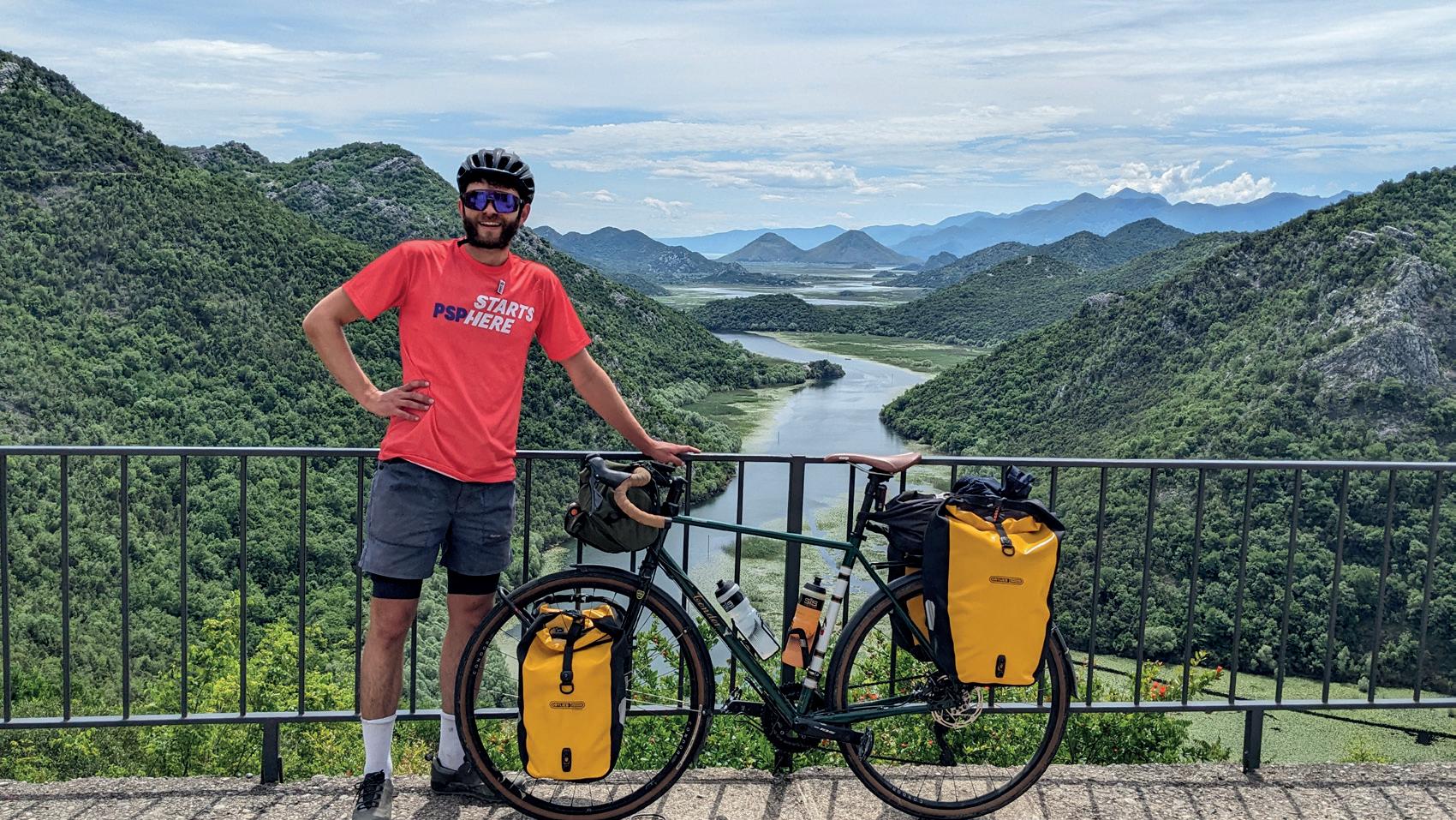
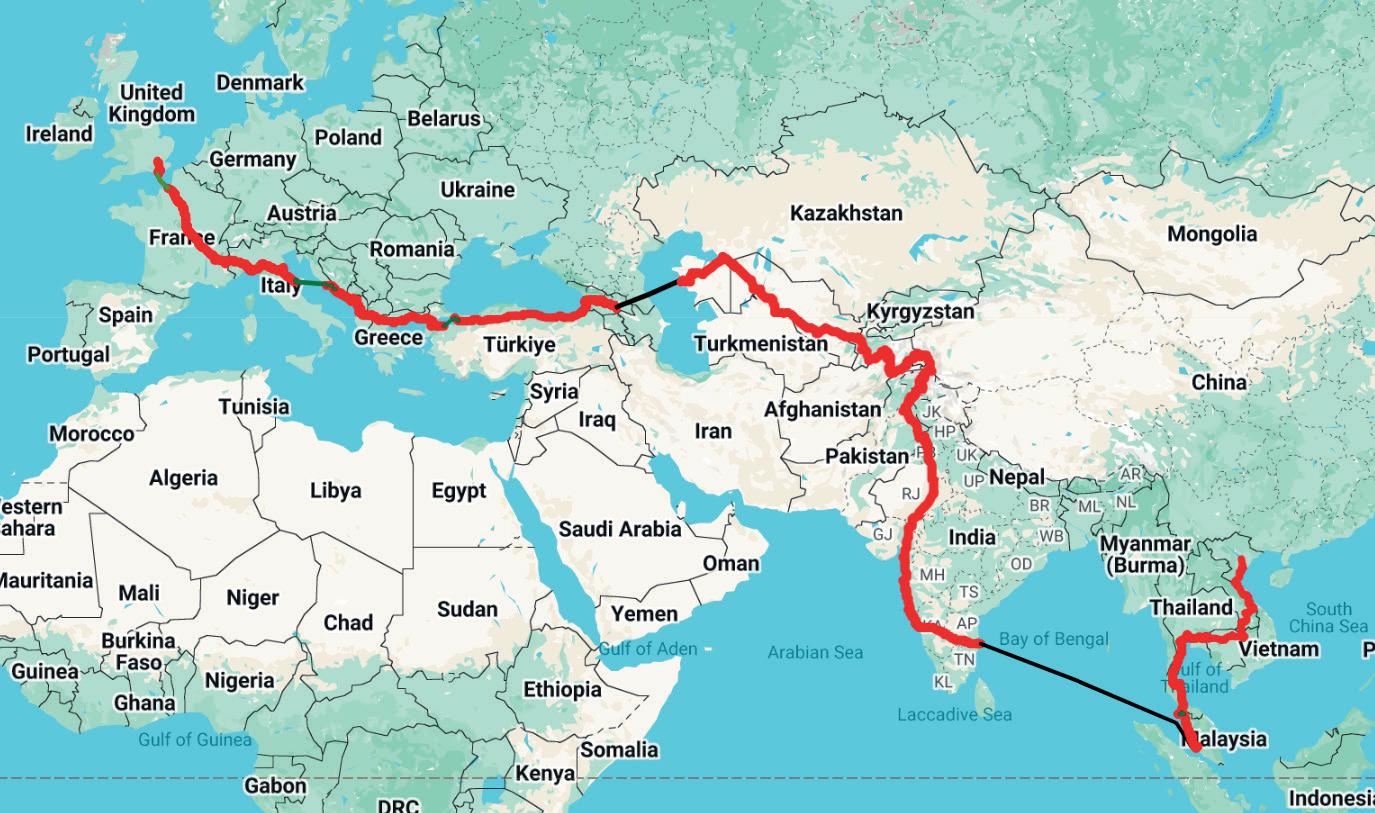





Michael Aquilina’s dad, Peter, was diagnosed with PSP in 2018 and sadly died in April 2023 at 64. Michael wanted to do something to give back to the charity that supported his family during his Dad’s illness. In 2021, he ran the London Marathon for PSPA raising £18,000 and in 2024, inspired by his Dad’s love of adventure, Michael set out on a epic bike ride to Vietnam taking 11 months to travel through 21 countries over 17,000 kilometres, raising £38,000. Here he tells his story.
“We grew up with Dad always doing something, he was by no means an action man but his passion for cycling, sailing and skiing all showed his thrill seeking side. In his 20s he sailed across the Atlantic with a friend. That was the kind of man he was. Always chasing amazing experiences. And he raised us to love the outdoor adventures too. So I guess his love of adventure rubbed off on me.
“In my twenties I started doing more long-distance cycling. Weekend trips with friends, camping wherever we could. I started to think about a bigger trip. The seed was sown by Dad, who told the story that if he hadn’t sailed the Atlantic he was toying with cycling to Vietnam. PSP slowly took everything away from Dad. If there was anything I’ve learned, it was to live life now.
“In April 2024 I set out on my bike from my family home in London. Through France, Italy and Croatia, it was all very pleasant and familiar, it was when I reached Albania, crossing from Montenegro, where it felt like I’d truly left the familiarity of western Europe behind. The further east I went the landscapes became bigger, endless, more remote. I loved being in the mountains.
Pakistan’s mountains were punishing, but the views and vastness were exhilarating. In Tajikistan, I cycled up passes 4,600 metres in elevation, camping out near the Chinese border in a graveyard for shipping containers where temperatures dropped to -5C.
There was a small yurt filled with passing truck drivers, where I spent the evening eating plov, drinking tea and staying warm before braving the tent for the night. The unforgettable hospitality in the most remote places never ceased to amaze me.
“The deserts were beautiful but brutally unforgiving. I crossed the vast expanses of Kazakhstan and Uzbekistan in the height of summer, through 40-degree heat that sapped my energy.
“There were some real lows. In Turkey, I was hit hard by illness, and when I was in Tajikistan, I was in a remote mountain village, too weak to go on. The climb ahead was impossible in that state, so I made the difficult call to turn back. Fortunately there was a basic homestay
in the nearest village, and with no common language, just a count of how many times I went to the toilet in 24 hours, the homestay owner managed to convey to the village doctor how I was feeling. She hooked me up to a drip, and slowly, strength began to return. After some rest, I was able to get back on the bike and carry on.
“India was a sensory explosion, beautiful chaos. The infrastructure was tough with bad, bumpy roads, it always felt you were in an uphill battle to make any real progress, but it was quite unlike anywhere else. Luckily I was joined by a few good friends to get me through this section, or else I’d probably still be there! I had friends and family join throughout the trip – my girlfriend rode through the desert in July, my mum visited me in Croatia, and a friend met me on the finish line in Vietnam.
“I’d expected loneliness to be a bigger challenge –nine hours a day on a bike, limited conversation. But in reality I thrived in that solitude. The simplicity of it gave me clarity, my life revolved around eating, staying hydrated, cycling and finding somewhere to camp, nothing more.
“Dad would have loved the route, the encounters, the landscape. He would’ve wanted to hear every detail. The support I’ve had was incredible. I’m delighted to have raised so much money for PSPA. I returned home in March and life has suddenly slowed down. No more checkpoints, no more daily climbs. It’s disorienting, going from that single-minded purpose to everyday life.
“The world is vast and full of generosity. The places you have the biggest preconceptions about, often provide the kindest, most eye opening experiences. Seeing it on a bike is one of the best ways to experience it. Every 20 metres brought something new. PSP has shown me how precious life is. It also gave me a sense of purpose and drive to do something like this before it is too late.”
"I’D EXPECTED LONELINESS TO BE A BIGGER CHALLENGE – NINE HOURS A DAY ON A BIKE, LIMITED CONVERSATION. BUT IN REALITY I THRIVED IN THAT SOLITUDE."
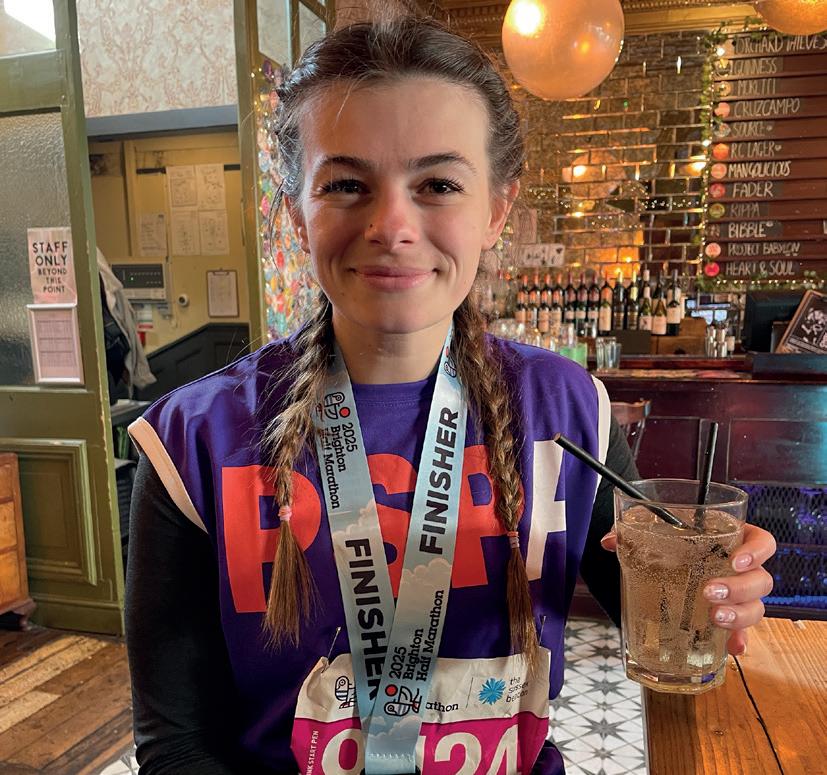
£1,300
Bethany Donegan ran her first ever half marathon, the Brighton Half, in honour of her grandad. Bethany said: “It was hard, but an amazing experience. I’m so pleased with the money I’ve raised.” Bethany smashed her target, raising £1,300.

£500
NOTHING COULD STOP HER
Trudie King was another one of our fantastic supporters who took on the Brighton Half Marathon. Although she took a tumble, Trudie persevered and completed the race, raising £500.
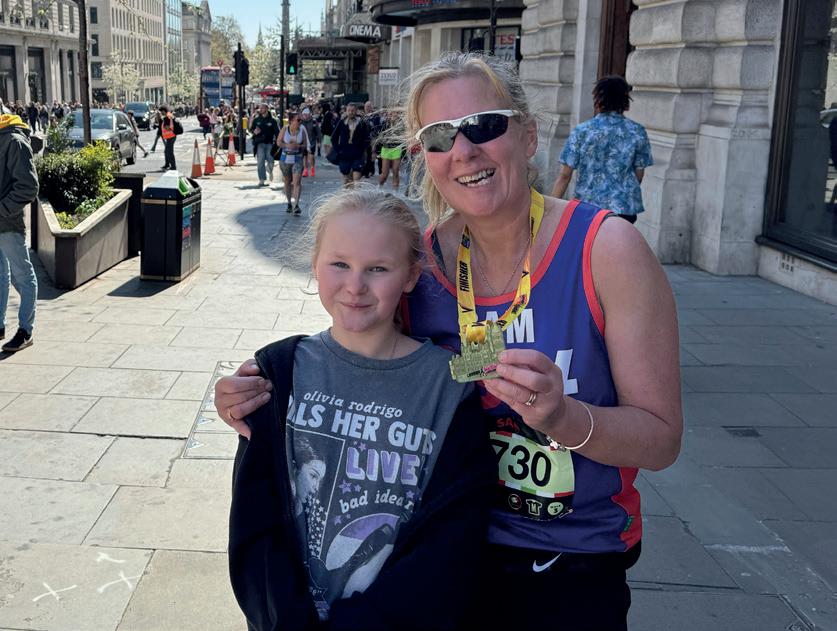
£1,200
RUNNING AROUND LONDON
Sam Hele was part of #TeamPSPA who ran the London Landmarks Half Marathon. She was running in memory of her mum and was supported on the day by her daughter and husband. Sam said: “Thank you so much for giving me the chance to again raise money for PSPA and the opportunity to run the London Landmarks.” Sam has so far raised a fantastic £1,200.

£1,030

SPRING HAS SPRUNG IN RUTLAND
Rebecca and Stephen Pettit completed the Rutland Spring Half Marathon on a beautiful sunny day. Together the couple have raised a brilliant £970.
PETE’S COWBOYS
Isabelle and Abi tackled the London Landmarks Half Marathon in memory of their grandad Pete. Pete was diagnosed with PSP shortly after retiring and sadly died in 2023. This was the second event the family (also known as Pete’s Cowboys) has undertaken in order to help raise money and awareness for PSPA. They have currently raised £1,030.
Thank you to our incredible team of runners who took on the London Marathon this year. They persevered through the sweat, pain and tiredness to accomplish something truly special, raising £221,610 for PSPA.

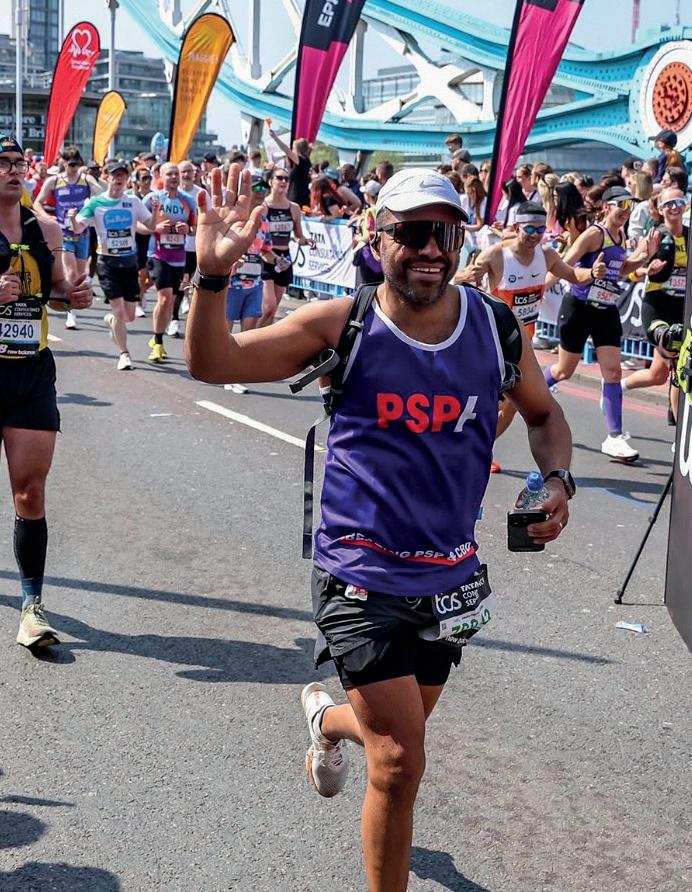
£221,610
It was a wonderful day where our PSPA community came together to cheer our heroic runners across the finish line. The waitlist for 2026 is already open, if you would like to take on this iconic race visit our website to find out more.

